#the “everyone comes together against one person” but its the protagonist
Explore tagged Tumblr posts
Text
Hot take: The Spiderverse is just the fandom conflict on whether to follow canon or fanon when writing a fanfiction
#the wall pinning.. the voices coming back to haunt.. the shouting in your face as i pin you down.. the chase..#the “everyone comes together against one person” but its the protagonist#and everyones saying to stick to canon but Miles does not want to#literally the fact they keep referring to the canon timeline#its like how the majority of people who write fanfictions end up following canon regardless of their intent to or not#that once you entertain fanon and do it.. everything is unknown and relies on what YOU do and think happens next#can you tell i just watched the movie?#i liked it mainly because it's so fanfiction-y#even the half-incompetent mentor and the protagonist being 15 and saying theyre an adult and all the advice people are giving#but will be ignored / haunting / becomes a plotpoint to follow#even the words thrown at a woman and suddenly she falters for the protagonists#spoilers#all the wall-pinning and i was like “hey this is getting sexual” even though the age gap with all the spitting in the face shouting and#shoving you so hard into the train that it breaks under you#seriously the big argument is whether Miles will follow canon or break away into fanon#and thats the whole story. the end
3 notes
·
View notes
Text
ROUND 5 MATCH 6
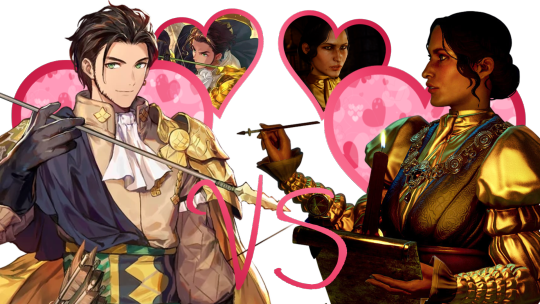
Claude propaganda:
"To say Claude has trust issues is an understatement��you have to spend half the game earning his. (Claude isn't even his real name!) Once you have it, though, he's absolutely ride or die for you until the stars go out. He is so full of heart and ambition: He wants both sides of his heritage to get along, he wants to open borders and eliminate xenophobia and promote equality between commonfolk, and deep down, I think he craves a partner to stand with him at that new dawn, or an equal who sees his vision for the future and will fight for it just as hard. Nobody believed in him when he was a kid, but if you put your faith in him, he'll return it tenfold. Some people don't like that he's calculating, or has to leave the player character at the end of the game to go back to his homeland, but both are necessary elements for his goals to change things. He will always come back, and everyone who bets against him and his love for his companions is wrong with a big fat W. #KhalidForMostDatablePrez"
"Claude is a fun little onion of facades. He calls himself the embodiment of distrust, he acts like he's carefree and without worries, an unscrupulous schemer--and so many in universe buy into that hook line and sinker. He's used to others viewing him with suspicion and uses it as armor to obscure his not-so-dark truth: that he cares immensely, that he values minimizing the loss of life, and that above all he has so much hope that people will fundamentally choose to do better given the choice.
His front guards a center that his conflict filled world would be happy to tear apart. As the child of people from two nations in constant conflict--one of which is explicitly isolationist and dehumanizes those outside its church's reach--he hasn't really had a place where he can be without his facade. As a child he thought he could run, but when confronted with the fact that this hatred existed no matter where he ran, he chose to instead try to create a more just and kind world.
His inability to let others in beyond his facade at first may lead to a sense of distance, but isn't it then all the more satisfying when you're allowed in? All he wants is a little trust, a little faith, and--like what he wants to give everyone--a chance to be better.
And like that you got a charming young lad with a fun personality that your grandma would be thrilled to have stay forever."
Josephine propaganda:
“you get to have a full Disney princess style romance with her, she is the most precious, the most sweet, I love her so much 🥺”
“Josephine's one of the "behind the scenes" companion for the protagonist and she advises them on diplomacy-related matters.
Her personal quest and romance is fairy-tale worthy: she gets threatened with assassination, you help her restore her family's fortune, you get threatened by her best friend to not break her heart, she doesn't dare to hope you mean anything serious when flirting until you spell it out for her, after which Josie agrees to a deeper relationship... And immediately after that she finds out her family has engaged her to a random noble without her knowledge!! You publicly challenge the suitor to a one-on-one duel to win her hand, she finds out and interrupts the duel because she's worried of the Inquisitor throwing literally the entire plot away and risk life in combat for her... To which of course you can confess that they're doing it because they love Josephine, and they get the cutest cutscene with Josie jumping in the Inquisitor's arms and them spinning her around before kissing each other <3 The betrothed steps away because he sees true love between the two. She and the Inquisitor stay together through the end game and after it, gaining a "second home" with her and her family.
She really believes in the Inquisitor's cause and from the very first conversations with her, she asks questions about your background and tries to make you feel welcomed (especially appreciated if the Inquisitor isn't human since people are less trusting of them). She's politically smart but dislikes violence, overall very sweet but still strong... Josie tends to overwork herself (she's a perfectionist) and at first she tries to keep a professional air at all times but if you encourage her, she will rant to you and spill all the tea about nobles lol.”
#claude von riegan#Fire Emblem#Fire Emblem: Three Houses#FE:3H#josephine montilyet#Dragon Age#dragon age inquisition#Round 5#MDDC 2
300 notes
·
View notes
Text
oh, say it ditto

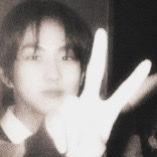
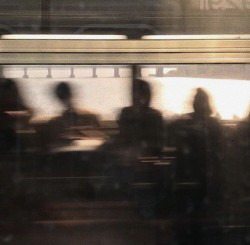
PAIRING situationship!jungwon x reader GENRE angst, highschool AU WARNING insecurities, miscommunication?? WC 0.7k
❕series masterlist

November 21, 1998
"is it true?" minji, your friend, asked as she plopped on the chair in front of you, a melona ice stick in her hand "are you and yang jungwon from class 4 really dating?"
you paused. what were you supposed to tell her? ' yes we are' and then get turned down by the boy you liked like a fool? yeah, that's not going to happen.
so you only shook your head. as much as you didnt like the idea, you and jungwon aren't a thing, and he apparently has no intentions of making it official.
despite the late night calls or him waiting for you after school to walk you home, he has never confessed how he really feels about you
the small chit chat lingered in your head for the rest of class. insecurities and what ifs haunted your mind like a parasite not willing to leave its host. a frown etched on your forehead as you leaned on your chin, lost in your own world.
a cold sensation touched your skin, a gasp leaving your lips as you looked up to the perpetrator. and there he was, the boy who's slowly breaking your heart grinning like an angel fallen from grace.
"class prez, are you thirsty?" he asked with a bottle of banana milk in his hand, doe eyes forming into crescents and dimples leaving your legs wobbly. if you weren't already seated, you would've definitely fallen.
but silence hung heavy in the air and you didnt dare to speak. too afraid that his presence will make your voice betray you.
"thank you" you say with faux confidence.
why is he here? you never spoke at school, keeping your relationship out of sight from everyone. "im a private person" he has told you, but is that really the truth?
the absence of his affirmations left your heart wobbling and struggling on a fragile edge, desperately grasping onto threads of hope.
Like you a little, don’t want no riddle
maybe, just maybe, he needed time to sort through the maze of his own emotions. Maybe he was as afraid as you were, terrified of crossing the boundaries of friendship into something more.
"let me walk you to your next class, yn."
you heart ached and screamed for resistance, to turn him down and let you heal.
but you nodded.
December 18, 1998
but as days turned into weeks, doubt crept into the deepest recesses of your heart. fear of rejection clawed at your self-esteem, whispering cruel reminders of your misplaced hope. maybe you had misread everything. maybe his silence was a rejection in disguise, too painful to be spoken aloud.
February 17, 1999
each interaction became a tug-of-war in your mind, balancing on the precipice between euphoria and heartache. you weaved through the labyrinth of mixed signals, dissecting his every word, searching for hidden meanings. his smiles, his laughter, the moments you shared together, all fueled your longing for something deeper, for a connection that transcended the uncertainties of a situationship.
Say it, say it back, oh, say it ditto
and so, you found solace in the uncertain, cherishing the pieces of hope that still shimmered within. in the quiet depths of your heart, you held on to the possibility of reciprocated love, hoping that maybe one day, he would find the words to express what his silence couldn't.
but as the drizzling rain pattered against your window, a cruel realization settled within—a truth too raw to ignore. the love you craved, the affirmation you eagerly wanted, may never come. And with that realization came acceptance, a bittersweet realisation to the heart
November 21, 1999
each unspoken word became a chapter left unwritten, leaving room for unanswered questions and unresolved emotions. and though the journey with Jungwon held the potential for a love story, its unwritten conclusion deemed it as a tragedy, with you as its protagonist.
leaning against the window pane, your gaze shifted from the rain-streaked glass to the world beyond. a mixture of sorrow and comfort laced your heart as you realized that sometimes, the most beautiful stories were those that remained untold. and as you moved forward into the future, you carried with you the lessons learned, the strength gained, and a love that may forever remain stuck in the confusing space between what was and what could have been.
do you think about me now?
#2/7 of enhypen as newjeans songs#k labels#kflixnet#hyfenet#jungwon angst#jungwon scenarios#jungwon x reader#yang jungwon x reader#yang jungwon fluff#enhypen headcanons#enhypen fluff#enhypen imagines#enhypen scenarios#enhypen x reader#enhypen smau#jungwon headcanons#enhypen#jungwon#jungwon fluff#jungwon imagines#jake angst#jay angst#heeseung angst#niki angst#sunoo angst#sunghoon angst
521 notes
·
View notes
Text
Beyond Evil: The Romcom
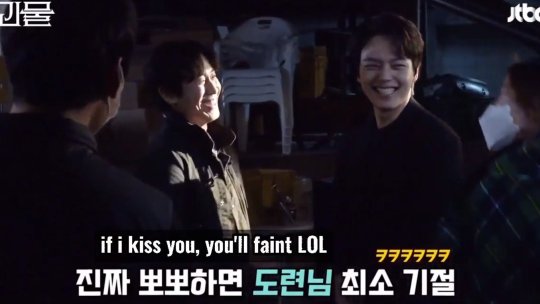
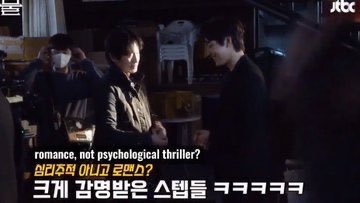
I've always said that barring all the murder and mystery elements, Beyond Evil is at its core a romantic comedy, and here's the proof (aside from Hakyun and Jingoo themselves pushing the agenda lol):
Bear in mind that if this is a romcom, not a thriller, it means Everybody Lives ™ and No One is A Murderer ™
Our main protagonist is of course our eccentric small-town hero, Lee Dongsik, who's known for his quirkiness and idiosyncratic tendencies in solving crime. His unorthodox methods of catching criminals earns him the grudging respect of the Regional Investigation Unit, where he works under his mentor and beloved second father, Nam Sangbae.
The office is situated at the Seoul Metropolitan Government Office, where our hero meets the other male lead: Han Joowon, esteemed Inspector working in Foreign Affairs, renowned for his keen intellect, cold personality, and most importantly, the notoriety of his rich and powerful family.
A particular difficult case involving the disappearance of illegal immigrants forces Foreign Affairs and the RIU to work together, and an unlikely partnership between each department's best officer.
The second lead is our hero's longtime childhood best friend, Park Jeongje, whom Dongsik thought was initially in love with his twin, Yuyeon. Yuyeon liked Jeongje but not enough to give up her ambition for him, and when Jeongje left for the states, Yuyeon graduated from Seoul National University as summa cum laude and passed as the bar topnotcher.
Yuyeon had the brains, but unfortunately not the connections, and with her background AND her gender she found it difficult to prove herself at the law firm where she was hired, and goes head to head with the ambitious Kwon Hyuk.
Unbeknowst to Dongsik, he was actually the one Jeongje was in love with. Do Haewon finds out and she's against it because she wants Jeongje to have that traditional marriage with a traditional family because for Jeongje to come out of the closet would affect her image as a rising politician.
Han Kihwan, for his part, is seeing how his normally poised and law-abiding son is being pulled into questionable methods by Dongsik, and vows to separate their partnership.
Dongsik's and Joowon's begrudging partnership also leads Yuyeon's and Kwon's paths to cross more often, and a budding romance develops between the lawyers as the side couple.
Lee Changjin is still Oh Jihwa's ex-husband, and no matter how Dosoo tries to arrange blind dates for Jihwa, she turns them all down. Dosoo wonders why she doesn't have time to date if all she does is visit Jaeyi's butcher shop even after work.
Jaeyi herself gets questioned often by her mother and the ahjummas in town why she won't get herself a boyfriend, especially that handsome young officer from Foreign Affairs who keeps visiting, and she only smiles and doesn't answer every time she reserves a seat for Jihwa after work hours, just for the two of them.
Minjeong, meanwhile, sneaks behind everyone's back to date Jihoon, but Dongsik, overprotective of her ever since he became her legal guardian after her parents abandoned her, keeps getting in her way. It causes a tense friction between him and Jihwa, as Jihwa asks if Dongsik thinks her brother isn't good enough for his ward.
Jeongje of course, sees this as an opportunity to side with Dongsik, and it causes friction with his friendship with Jihwa as well, which also then causes friction between Jaeyi's friendship with Dongsik, and drama ensues.
Upon seeing how Dongsik is distracted by his mysterious new partner, Han Joowon, Minjeong takes it upon herself to make sure those two get together so Dongsik wouldn't focus all his attention on her and she gets to do what she wants. Hijinks ensue, especially when he ropes in Jihoon in her plans.
Somehow this leads to Minjeong and Jihoon accidentally discovering an international crime syndicate and they both get kidnapped for it, but not to worry because Everybody Works Together™ to save them and unravel the crime syndicate at the same time.
Han Kihwan and Do Haewon finally sees and understands Dongsik's true worth to both Joowon and Jeongje, and in the end, Dongsik asks Joowon if they can extend their partnership outside of work.
Jaeyi and Jihwa end up together, Yuyeon and Hyuk end up together, Minjeong and Jihoon end up together, and Jeongje comes to terms with his feelings for Dongsik and vows to be there as his best man.
At the wedding held overseas, Jeongje is reunited with Yuyeon, and tells him she wishes happiness for him too, someday. She and his twin brother will always be there for him no matter what.
At the reception, Dongsik introduces Jeongje to this new young officer: Lee Sangyeob. Sangyeob tells him he was Dongsik's former partner, and they spent the rest of the reception laughing and commiserating over Dongsik.
And they lived happily ever after. As they ALL should.
#beyond evil#romcom version#crack treated seriously#but is this really crack if it's all already canon anyway lol
65 notes
·
View notes
Text
so i've been falling down the danmei productions (chinese censored productions of BL novels) rabbit hole and i've figured out the basic BL starter pack:
1. BANTER. the two protagonists need to make a ton of thinly veiled jokes at each other about being in love. because censors! so in order to get any of it aired it's all gotta be nudge nudge wink wink. let me insert an episode where everyone suddenly acts out of character due to magic! or let me make the shameless one dress as a woman for an episode! they will find any and every way to let the two leads f l i r t and make us all wonder: why don't these two just get married already?
2. YEARNING. because if one half of our main couple has not waited at least 10 years for the other to either show up in their life or resurrect from the dead, are they really in love?
3. OPPOSITES ATTRACT. we need the flirty one! endlessly grinning and touching and teasing the silent one! and the cold quiet one is only soft for the sunshine one! how else can we know that their love is true!
4. SUFFERING. and i mean SUFFERING. dead parents. entire families annihilated. torture. tragic backstories abound. these men have never known happiness until they've met their other half. and then all they want to do is watch the world burn together. (and can we really blame them for that?)
5. ACTS OF ("brotherly") LOVE. they were brothers, historians would say, but they're almost always nearly dying for each other, and longing after each other, and siding with each other against the entire world.
5.1 OH BUT THEY WERE IN LOVE IN LOVE. there's gotta be at least one scene somewhere when our two main protagonists speculate about their possible future together. especially if it's just before some incredibly terrifyingly intense climax of the story (where one of our leads may *gasps* die) they talk about running a noodle shop together, or roaming the world together, or travelling from town to town fighting crime together.
5.2 AND THEY WERE SOULMATES. the word soulmates comes up somewhere. it technically translates to confidant (or person who knows me) but. if the translators decide to subtitle it as soulmate who am i to tell them otherwise.
6. FOUND FAMILY. they also have to adopt a kid who's gonna follow them through their adventures. sometimes it's two kids, sometimes it's a whole baseball team of children (of all ages and genders, they are incredibly inclusive on this point in this way). these kids are going to represent every single viewer, watching the main leads flirt while wondering, why don't i have two dads? why must one always go away and leave me behind? why is it always the rich dad that's gotta go? please come back and feed me and my poor papa we are starving rich dad.
i could keep going but these are the main requirements in our basic chinese BL novel adaptation starter packs. oh also most of the budget goes into hiring the two most attractive main leads possible and you get to watch as the cgi gets worse episode after episode as the show loses funding through its run. but it doesn't matter because these two men are clearly in love and i'm still 100% here for it.
#chinese BL novel adaptations#the untamed#guardian#word of honor#the sleuth of ming dynasty#a league of nobleman#technically that last one was not a BL but#they broke up at some point and each fed their shared custody kittens#so i'm counting it
145 notes
·
View notes
Text
Blake's Jungle Book
The Jungle Book is Blake's secondary allusion, which is used to describe our Cat Girl's political plotline, her relationship with the White Fang and her interactions in Menagerie (her personal Jungle).
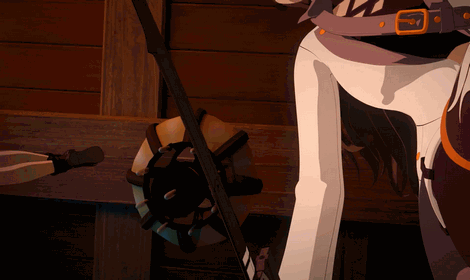
A POLITICAL FAIRY TALE
Rudyard Kipling's The Jungle Book is a metaphor for the author's moral and political beliefs. Unluckily, these ideals are not that good, as Kipling is the author of The White Man's Burden, a famous racist poem. In short, Kipling believed it was the duty of the white man to colonize and educate the "savages" (ugh).
This philosophy appears in The Jungle Book, as well (luckily not as much and together with better themes). Now, RWBY counters this by turning Kipling's premise upside down.
Kipling's works often present the English Colonialism as positive and helpful
Blake's Jungle Book shows a discriminated minority fighting for freedom, conquering violence and helping the world
So, RWBY's Jungle Book becomes an answer to the original tale. It refuses its racism, but keeps intact the vibrating characters and the powerful themes of freedom and self-discovery.
SUMMARY AND KEY ELEMENTS
The Jungle Book is not a novel, but rather an anthology of short stories that often have animals as protagonists. Among these, Mowgli's fables are the most famous and the focus of this meta.
So, here comes a summary of Mowgli's coming of age journey, which is told in several separated tales.
One night, a couple of wolves (in some versions Rama, the father, and Raksha, the mother) find a human cub and adopt him. They call him Mowgli (frog) because he is hairless. Still, the tiger Shere Khan wants to kill the baby. The matter is discussed at the pack's meeting, where Akela (the leader of the wolves), Baloo the bear and Bagheera the panther all defend the child. In the end, Mowgli is accepted into the group thanks to Bagheera offering a bull for him.
Mowgli grows like a wolf of the pack and lives several adventures under the mentorship of Bagheera, Baloo and later on Kaa the python. He follows the Law of the Jungle and feels part of the pack (the free people). Meanwhile, though, Akela grows weaker and Shere Khan spreads his influence among the younger wolves. He convinces them to antagonize Akela and Mowgli. One night, Akela fails to kill the prey, which means the other wolves can kill him. Shere Khan wants to use this chance to seize the position of leader and have Mowgli die. However, Mowgli steals a pot of fire (the so called red flower) to use against the tiger, has him run away and saves Akela. Still, the pack is left with no leader and Mowgli himself feels betrayed by the other wolves siding with Shere Khan. So, he leaves the jungle and goes to live with the humans.
In the human village he is adopted by a woman called Messua and starts herding the buffalos. One day, he is reached by one of his wolf brothers who warns him Shere Khan is coming to kill him. Mowgli decides to attack first and has the buffalos run over the tiger, who is stomped to death. A human hunter sees this and enters a fight with Mowgli over the tiger's skin. The hunter turns the other villagers against the boy, who is forced to leave. He goes back to the jungle, where he is now considered a king, as a result of him killing Shere Khan.
However, the humans think of Mowgli as a demon now and lash out against Messua. They have the woman and her husband tied up to be executed. Mowgli frees them and then decides to destroy the village. He asks for the elephants' help and has them stomp over all the fields. In this way, the humans are forced to relocate and the village gets engulfed by the animals and the vegetation.
Some time later, a new wolf pack is born, but they are soon threatened by the red dogs, who are very aggressive and kill everyone in their path. Mowgli decides to fight together with the wolves and asks for Kaa's advice. The python helps Mowgli lead the dogs where the bees live. The insects emerge from their nest and kill half of the group, while the other half is defeated by the wolves. In this fight, Akela finally dies and tells Mowgli to go live with the humans.
Years later in spring, Mowgli follows Akela's advice and goes to another human village, where he finds Messua again. He goes to live with her and says goodbye to the jungle. Bagheera kills a bull just like the one he offered for Mowgli's safety in the beginning. This is the panther's goodbye and he, Baloo and Kaa all bless Mowgli, as he leaves.
Mowgli's story deals with themes key to Blake's arc.
1- Freedom
Your hopes have become my burden. I will find my own liberation…
Mowgli's pack is called the free people and Blake's White Fang fights for the faunus's freedom. Not only that, but the jungle animals call each other's brothers and sisters, just like the faunus in Menagerie do.
Bagheera went on, "Open your eyes, Little Brother"
Ghira: It's your brothers and sisters.
So, both Kipling's animals and Blake's faunus explore freedom. On the one hand the jungle animals follow the Law of the Jungle and are noble and free because of it. On the other hand the faunus must decide if giving up their own morality is a price they want to pay for their liberation.
Does being free mean you chain someone else up? Or is there another path to freedom?
2- The animal/human dychotomy
Past Blake: It’s simple, really. You could just be human, or just a cat, if you wanted. Really, it’s up to you. Blake: Why would I do that? Past Blake: Like I said, it’s simple, much simpler than trying to be a bridge between Humans and Faunus. Why struggle with that responsibility?
Mowgli and Blake are both animal and human. This in itself is a double-edged sword. On the one hand they find friends and allies both among the faunus/animals and among the humans. On the other hand they sometimes feel they don't belong anywhere. This conflict is explored by them moving freely between the 2 worlds.
Mowgli goes back and forth between the jungle and the human village:
He grows in the jungle, but leaves after the fight with Shere Khan
He lives in the human village for a while, but things do not work out and he goes back to the jungle after killing the tiger
He becomes an adult in the jungle, where he grows powerful enough to lead his pack against the red dogs
He finally chooses to start a new life among humans
Blake goes back and forth between Menagerie/the White Fang and Remnant/team RWBY:
She grows with the White Fang (her pack), but chooses to leave it after Sienna Khan (Shere Khan) becomes the new leader
She lives at Beacon (the human village), where she hides among humans and tries to conform. Still, things don't work out and Adam and the White Fang (the jungle) catch up to her
She goes back to Menagerie (the jungle) and grows strong enough to lead her people (the wolves) against the White Fang (the red dogs)
She finally leaves Menagerie and the White Fang (the jungle) and starts a new life with her team (humans)
So, Blake's story can really be told through The Jungle Book. Let's see to what extent and how the faunus of Menagerie fit the jungle chatacters.
Before we start, though, here are some metas by @blue-cheeseinmyoffwhites, which explore the Jungle Book allusion:
Ilia as Mowgli
Kali as Raksha
Ghira as Bagheera
I am going to reference several ideas present in these posts, so a big thank you to the OP's contributions!
BAGHEERA VS SHERE KHAN
The Jungle Book starts with a disagreement between Mowgli's parental figures and Shere Khan. They fight over the future of the newfound human cub. Should he live or should he die?
This same conflict is present in RWBY, as well. It is just that here the ideological clash is not about a single human child, but rather on the human race, as a whole. Should faunus try to live peacefully with humans or should they fight them violently?
Two leaders come to opposite answers to this question.
On the one hand there is Ghira (together with his wife Kali):
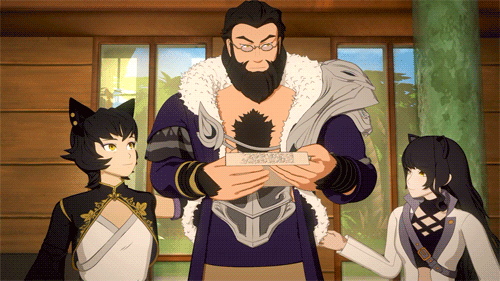
Kali and Ghira allude to all of Mowgli's parental figures, who are:
Raksha - the mother wolf who finds and adopts Mowgli
Akela - the leader of the wolf pack
Baloo - the bear who teaches the little cubs the Law of the Jungle
Bagheera - the black panther who used to live with humans
Kali is loosely based on Raksha in the sense that she alludes to the Goddess Kali, who is worshipped in some areas (like Bengal) as Raksha Kali (Kali the protector). She is also Blake's proud mama wolf (even if she is a cat :P) and is ready to do anything for her daughter's sake.
Ghira instead shares traits with all 3 of Mowgli's fathers. He is the leader of the White Fang, just like Akela is the head of the pack. He transmits his ideals of peace and equality to Blake, just like Baloo teaches Mowgli the Law of the Jungle. Finally, he is the chieftain of Menagerie, just like Bagheera used to live in the raja's menagerie. This is also why the black panther knows more about humans than the other people of the jungle. Similarly, Gheera wants to co-exist with the human race.
On the other hand there is Sienna Khan:
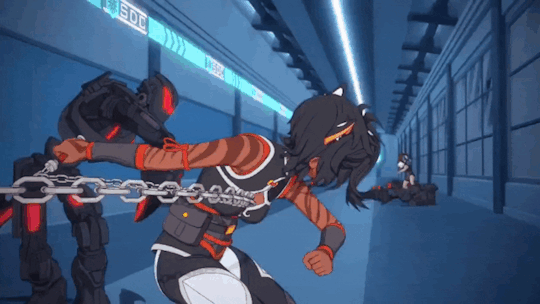
Sienna obviously alludes to the tiger Shere Khan. She is a tiger faunus, who despises humans, just like Kipling's character. Moreover, her personality is on some level similar to Shere Khan's:
Sienna: I'm starting to doubt either of you fully comprehend what it is that I want. I want humanity to fear the Faunus, to know that we demand respect! I do not want to start a war with the humans that we cannot win!
Here, Sienna basically says she is not gonna start a fight she is gonna lose. This personality trait is confirmed by her semblance Grudge, which lets her grow stronger and faster when facing a weakened enemy. In short, she symbolically grows more aggressive and powerful against an opponent already on their last leg. This is similar to the tiger, as Shere Khan is famous for fighting mostly when he has the advantage.
What's important is that Ghira and Sienna's rivalry mirrors Bagheera/Akela and Shere Khan's. On the one hand Bagheera and Shere Khan are opposites ideologically. The panther respects humans, while the tiger hates them. On the other hand Akela and Shere Khan are political enemies, as they fight over the control of the wolf pack. Similarly, Ghira and Sienna embody opposite ideals and disagree on how to lead the White Fang.
In the end, the 2 characters' stories mirror those of their literary counter-parts.
Bagheera and Akela remain close to Mowgli, who keeps following their teachings. In particular, Akela loses control over the wolves, but he is saved by Mowgli who grows into a leader of his own.
Shere Khan briefly becomes the leader of the wolves, but is defeated twice. First politically, as Mowgli humiliates him in front of the wolves. Secondly physically, as he follows Mowgli to kill him, but ends up dead instead.
Likewise, Ghira gives up the leadership of the White Fang and retires. Still, he gets his daughter back and Blake becomes his political heir. Sienna instead influences the younger generation (Adam, Blake and Ilia), but is killed by Adam, who steps up as her ideological successor. Her death even combines both of Shere Khan's defeats:
Mowgli wins against the tiger by using fire, which the people of the jungle call red flower. Adam is the red flower (cursed red rose) who steals Sienna's support and organizes a coup (political death).
Mowgli kills the tiger by having the oxens run over him. Adam is the bull who stomps Sienna to death and kills her (physical death).
Ghira and Sienna leave behind two opposite political legacies, which are picked up by respectively Blake and Adam. So, the panther and tiger's ideological conflict goes on with the cat and the bull's antagonism.
BLAKE VS ADAM
Blake and Adam's conflict ties with The Jungle Book in 3 different ways:
Blake is Mowgli and Adam is Shere Khan - They fight for survival
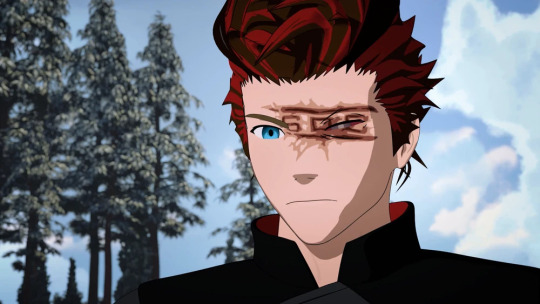
In The Jungle Book 2016 movie Shere Khan is blind from one eye. The tiger is said to have lost it to humans and their red flower (fire). This is very similar to Adam's backstory. He was abused by humans and lost an eye to them. As a result, he gets corrupted by a metaphorical red flower (the cursed rose), which turns him into a selfish beast. Both the tiger and Adam are blinded by their hate and are defeated because of this.
Not only that, but Adam's personality is really similar to Kipling's Shere Khan (way more than Sienna's). Both are bullies, which turn a wound (Shere Khan's injured leg and Adam's lost eye) into an excuse to hurt others. Both are short sighted and short lived leaders. Shere Khan's status as chief ends immediately because of Mowgli and Adam's command is lost because of Blake. Finally, both follow Mowgli and Blake to murder them, but are killed instead. The way Adam dies even alludes to the 2 ways Mowgli wins against the tiger:
Adam loses because of his anger blinding him, just like a crazy bull. Mowgli uses the oxens' fear and anger to lead them over Shere Khan.
Adam is defeated by Blake and Yang's combined efforts. In particular, Yang is the fire that helps Blake win against her personal Shere Khan.
So, Adam and Blake's conflict really mirrors Shere Khan and Mowgli's, with Blake gaining two big victories against the tiger/bull. The first political (at Haven) and the second physical (at Argus).
Blake is Bagheera and Adam is Shere Khan - They fight over Mowgli
Blake and Adam inherit Ghira and Sienna's philosophies. Not only that, but they make these ideals more radical:
Ghira: She's learned a lesson that evaded me until I was much older: That there is strength in forgiveness.
Adam: We're better than humans. We have everything humans have and more. Humans shouldn't just fear the Faunus, they should serve the Faunus.
Ghira admits that Blake has already surpassed him in terms of inner strength, idealism and ability to forgive. Adam claims that Sienna is not extreme enough in her grudge against humans. Humans should not only fear the faunus, but also serve them.
Blake mobilitates the faunus for peace and love, while Adam invites them to war and hate. So, what was a political disagreement for Ghira and Sienna becomes a full out fight for Blake and Adam. Once again, we have a black cat and a red beast fighting over how to deal with humanity. Symbolically this conflict becomes about one simple soul:
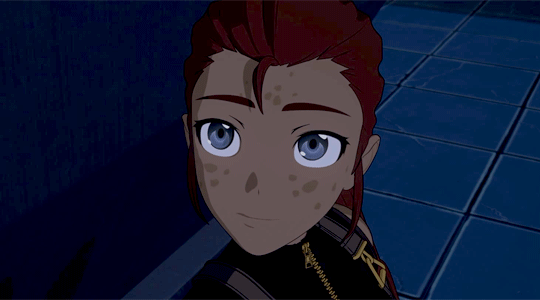
Ilia can be seen as based on Mowgli, especially when it comes to her backstory and chameleon traits:
Blake: Why… why'd you join the White Fang? Ilia: Same reason as you. Blake: But… Ilia: But why fight when I pass for Human?
As Blake highlights, Ilia could pass up as human. In a sense, she is "hairless", just like Mowgli who is jokingly called by his friends "little frog". So, Ilia could easily blend in and this is at the center of her background:
Ilia: We lived in Mantle with the other Faunus working the mines. But my parents wanted something better for me. They managed to enroll me in an Atlas prep school. Imagine that - a little Faunus girl from Mantle going to the city of dreams. I felt like a princess. But I had to follow a set of rules. No bringing friends home, no talking about my parents…and absolutely, under no circumstances, was I allowed to change colors. No one could know I was a Faunus.
Ilia tries to integrate in Atlas (a human village) and perfectly follows her parents' rules (the Law of the Jungle). Still, things eventually do not work out and Ilia leaves Atlas disgusted and heartbroken:
Ilia: I lost control. Every inch of me turned blue as I wept. And suddenly all the girls that I'd laughed and played with… were scared of me. Blake: I'm sorry. Ilia: Don't be. I broke their teeth.
This story parallels and partly inverts Mowgli's. Just like the human cub, she finds herself adopted by people different from her. She feels part of the pack, but a sudden tragedy makes her realize this isn't the case. She is betrayed and leaves to go back to her people. She joins the White Fang, but finds a violent and controlling reality.
So, Ilia herself is the Mowgli Blake and Adam are symbolically fighting for. After all, she is a foil of both.
Just like Blake, Ilia is a young girl who finds herself in a toxic cult. She is confused and manipulated and can't really build up the strength to leave. Her arc also partly inverts Blake's. She starts by hiding her faunus heritage and goes on by joining a violent movement. Blake is initially a terrorist and later on covers her faunus trait. They conceal parts of themselves, both in the White Fang and among humans. Their goal is to be accepted for who they are.
Just like Adam, she is a faunus exploited by Atlas, who grows resentful towards humans because of the Kingdom's racism. They are also parallels when it comes to Blake, as they both fall in love with her. Despite their past feelings, they are also ready to hurt her. In particular, Adam comes up with the plan to kill Blake's family and Ilia takes part in it out of desperation.
In short, Ilia walks a fine line between Blake and Adam and can either turn a new leaf or spiral more:
Blake: That's what worries me about Ilia. She's not like Adam, not yet at least, but I don't know how long that will last.
Luckily, a happy ending awaits our chameleon Mowgli. The conflict between Bagheera and Shere Khan over her destiny is won by the panther and Ilia is happily adopted by the wolf pack:
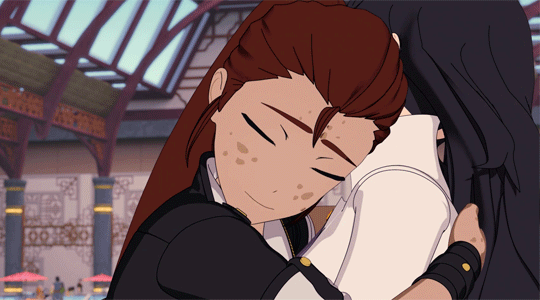
She finds a sister in Blake and new parents in the Belladonnas. This fits Mowgli's story. Even if he buries his wolf parents in their cave (just like Ilia's die in a cave in), he finds happiness and an adoptive mother in Messua (and Ilia joins Ghira and Kali).
Blake and Adam are two Mowglis - They fight over the Jungle
Mowgli is a character with a duality to him. On the one hand he is honorable, loyal to his people and he refuses to kill humans, even if they treat him poorly. On the other hand he is proud, angers easily and he destroys a village for revenge. He is both respected and feared by his peers:
Blake: We were being treated like equals. But not out of respect… out of fear.
Blake and Adam embody these 2 different sides of Mowgli.
Blake is the Mowgli who fights for her family, her wolf one (Ghira and Kali) and her human one (team RWBY). She is mistreated by both the wolf pack (White Fang) and the human village (society). Still, she doesn't give up on either:
Blake: We're not going to destroy the White Fang. We're going to take it back.
Yang: But you never gave up on them (people). Even when they hurt you. You never give up. You know what matters to you.
Adam is the Mowgli out for revenge, who doesn't forgive either the faunus (the wolves) nor the humans (the villagers). He wants to be on top and relishes his enemies' pain.
Allusion-wise, this difference plays out in the aftermath of Sienna's death, which parallels that of Shere Khan's final defeat. As a matter of fact the tiger's demise marks the beginning of Mowgli's conflict with the humans. This happens because an arrogant hunter wants to take credit for the kill, so he convinces the other villagers Mowgli is a demon.
Well, Adam comes up with a similar lie:
Adam: Give our former leader a proper burial. All who were here tonight will claim that Sienna was murdered by a human Huntsman.
He uses Sienna's death to spread hate towards the humans and the Huntsmen. Not only that, but he manipulates the people of Menagerie into believing the Belladonnas are liars and enemies of the faunus:
Ilia: The Belladonnas are the worse kind of Faunus! They want us to work with the same people that are trying to hold us down! If you truly, truly want to help your people… now is the time to support Adam, not the Belladonnas!
The result of Adam's scheme, though, is that Blake unites the Menagerie faunus (the jungle) by her side.
At the same time, Adam takes up Sienna's mantle as High Leader by killing her. This is how Mowgli gains the other animals' respect after showing them the tiger's skin. By this point, the wolf boy has the jungle antagonize the humans, just like Adam plans a full out attack on Haven.
Both Blake and Adam become the leaders of the jungle and have it advance against their enemy, like Mowgli does. It is just that Blake becomes an inspiration out of love and trust, while Adam grows into a king through hate and violence. So, their collision becomes a clash between 2 opposite ideas of jungle (faunus).
TWO RED FLOWERS
Mowgli's duality is nothing, but humanity's double nature. He can be both a god and a demon. Similarly, people can be both heroes and monsters. This juxtaposition is well conveyed through the red flower aka fire.
On the one hand the red flower gives light and warmth:
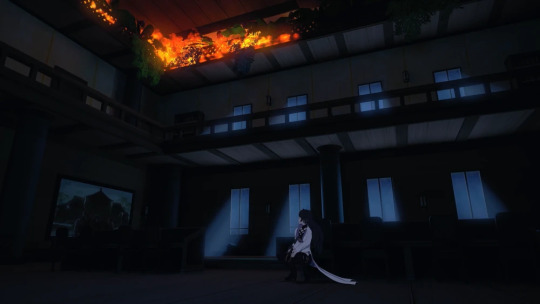
Blake uses fire to symbolically draw Ilia into the light and force her to show her "true colors".
On the other hand fire destroys and burns:
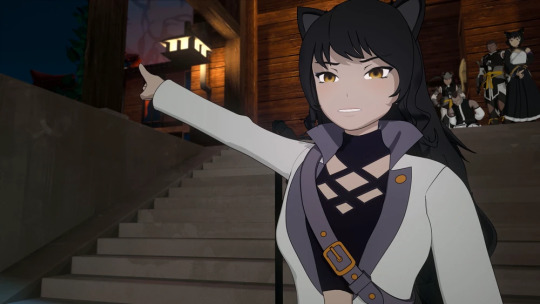
Blake: Humans didn't do this. We did this: Faunus. We did this to ourselves.
Blake chooses light and a loving rose who is hopeful and idealistic:
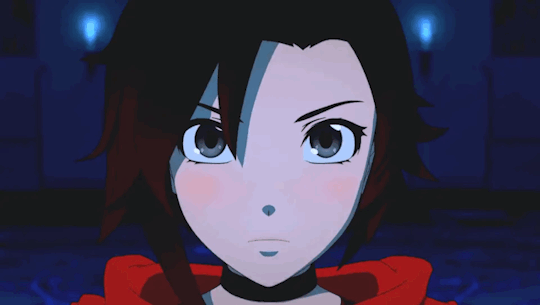
Adam chooses destruction and a spiteful rose who consumes and burns:
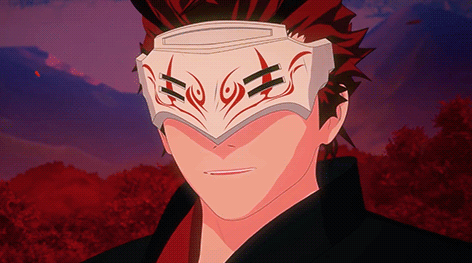
Blake and Adam's different ideologies are well conveyed through their two war songs:
This time The ways of the past we'll get over We'll climb Enlighten a new state of mind And now I'll stand with you shoulder to shoulder Out of the ashes a new flame ignite Rise up from shadows and into the light We'll stand undivided Our futures aligned A new brotherhood This time
I'm here I'm your savior I'll be lionized I am the path to reclamation This world will have no peace til our dream's realized No mercy no compassion our fate's justified Time to turn the table on who's tyrannized
Blake sings together with others. This is a recurring motif with her musical themes. After all, she sings alongside Adam, Sun, Ghira and Yang. When it comes to "This Time", though, the use of "We" shows how much Blake's community means to her. She thinks of the faunus as her brothers and sisters ("A new brotherhood") and considers them as equals ("I'll stand with you shoulder to shoulder"). She sees her pack as a political movement made of free people, ready to fight as one.
Adam sings to others instead. He presents himself as a savior and a hero, some kind of chosen one. By doing so he shows he doesn't consider the people he is supposed to fight for as equals. Everyone is below him. This feeling gets clearly exasperated with time.
He starts his own short with this:
Adam: Now - it's time we got what we deserved.
And he ends it this way:
Adam: It's time I got what I deserved.
He goes from "We" (community/brotherhood) to "I" (individual/savior).
Basically, Blake wants equality ("It's time to save our fate and walk beside the human race"), while Adam wants a new hierarchy ("Time to turn the table on who's tyrannized"):
Blake: I never wanted this! I wanted equality! I wanted peace! Adam: What you want is impossible!
Blake thinks true freedom is realized when everyone is free and equal. Adam instead believes freedom is simply imprisoning someone else.
These two mentalities tie with the idea of fighting, which is found in both Blake and Adam's rhetoric:
No way to avoid the warfare No way to escape this strife Hear now-listen to me This time retreat Spells our final defeat We must win our life
Lead them to salvation and regain our lives Behold your flaccid leaders Too weak to take the prize Replace them with a warrior It's time we mobilize
It is interesting because Blake and Ghira are seen as pacifists and even criticized for this. Adam and Sienna instead present themselves as fighters who are not scared to spill blood. And yet, the Belladonnas are the ones asking their people to fight:
Ghira: To do this, I think the answer is clear, we must go to Haven and protect it at all costs!
Adam and the White Fang instead claim they will fight in the faunus' place:
Ilia: He (Adam) will bring about the future that you deserve. And if you are unwilling to fight, know that the White Fang will do it for you!
This is addressed in Blake's speech in Menagerie:
Blake: So why are we letting Adam do it for us?! By doing nothing and staying silent, we let others speak and act in our place. And if we're not proud of the choices they make, then we have no one to blame but ourselves. This is the message that Adam Taurus will bring to the world if no one stops him. But we can stop him! (...) I understand that to ask you to leave your homes and protect Haven Academy is asking you to put your lives at risk. But that's what's at stake.
To give up one's agency to another is the opposite of freedom. Blake wants her people to be active and to choose their destiny. Adam instead is happy with them being passive, so that he can choose in their stead. Blake inspires the faunus to take their lives in their own hands, while Adam convinces them they do not really need to. Blake truly wants people to be free. Adam instead wants people to be his subjects.
These are Blake and Adam's opposite political manifestos, which are conveyed through two different flags.
Blake's flag mixes the old White Fang's symbol with a new yellow one, as there is continuity between Blake's movement and Ghira's. At the same time, white and especially yellow are two colors linked to light:
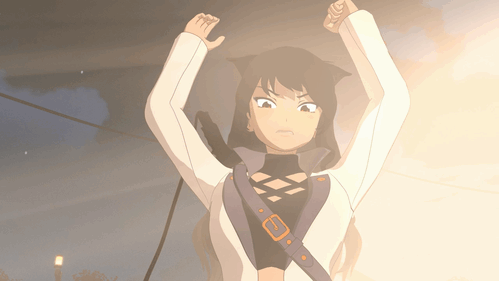
Blake symbolically brings Adam into the light and shows his real self to the world.
Adam's flag uses a red symbol, which appears more threatening. Red is linked to blood, as his movement is way more blood-thirsty than the original White Fang:
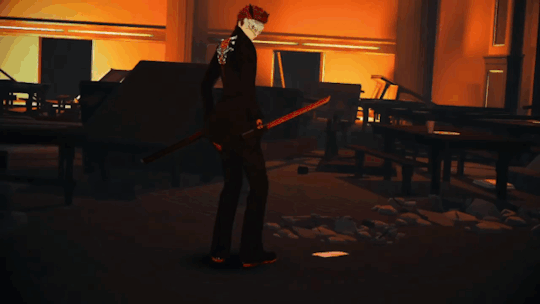
Adam at Beacon is surrounded by destruction and red flames.
So, Blake and Adam's emblems represent the two different sides of the "red flower". One is a flame which burns gold and sheds light. The other is a flame which burns red and spills blood.
THE RED DOGS
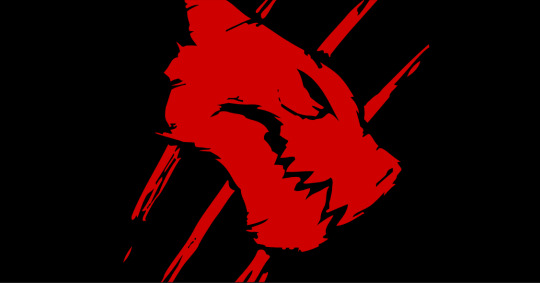
The White Fang's red symbol brings to mind the Red Dogs. They are an aggressive group of dogs, which antagonize Mowgli's wolf pack in the second part of the story. This allusion is hinted at also by the Albain Brothers:
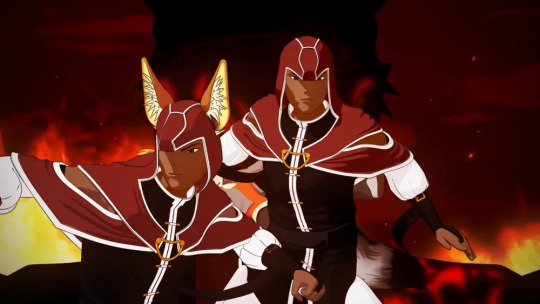
They are literally two red dogs and serve as Adam's most trusted allies.
In general, the short story Red Dogs describes Blake's conflict with Adam very well.
First of all, the war with the Red Dogs is in the second part of Mowgli's story and it marks a reconciliation between Mowgli and the wolf pack. Similarly, Blake and Adam's fight happens after Sienna's death and it ends with Blake mending her relationship with the faunus liberation movement.
Secondly, this story just perfectly fits Blake's plot-wise.
It opens with the arrival of a stranger. He is a lonely wolf (Won-Tolla), who has lost his family and a limb to the Red Dogs. He wants to fight the dogs for revenge, but advises the wolves to leave.
He loosely resembles a certain firecracker:
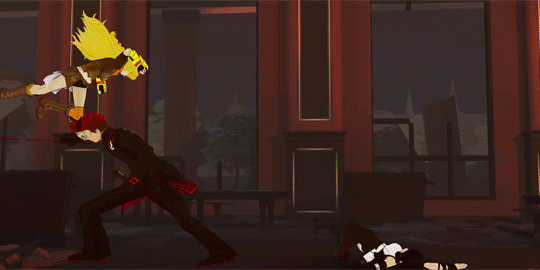
I am the golden one Who burns just like the sun Next time we meet is your disaster I'll bring the punishment Your song will be lament Revenge, my happy ever after
Luckily, Yang doesn't lose her loved ones to Adam (at least not permanently), but she still gets her arm cut and swears revenge.
Mowgli refuses to leave and urges the pack to fight. He says he is no part of the pack anymore, but that he will join the wolves for this battle. This is similar to Blake's speech to the faunus. She doesn't have to help the humans. Still, she is willing to and invites the other faunus to do the same. They shouldn't run away, but fight with pride:
Now is the time you must fight for your lives The battle is on you're already inside Don't turn back now There's nowhere to hide Nowhere to build a new world Nowhere to start anew Here. Now. Is all that we've got Ready or not There's a war to be fought Only one way through
Still, the real similarities between Kipling's story and Blake's struggle are found in her final confrontation with Adam:
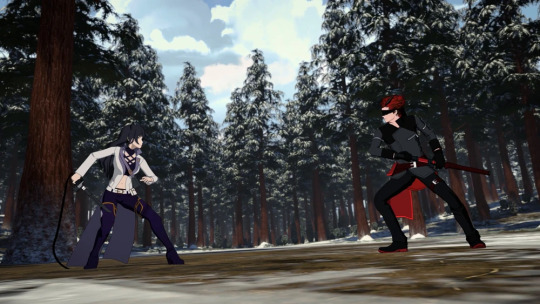
Mowgli defeats the Red Dogs thanks to a well-thought plan, while Blake wins against Adam thanks to her bravery. Still, the two fights follow similar patterns.
Both Mowgli and Blake face their opponents in a forest and lead them to a rocky area above a river:
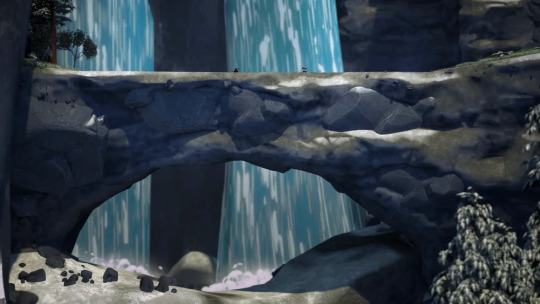
In The Jungle Book, this is where the murderous bees have their nest. Mowgli runs quickly past them and jumps in the river, where he is helped by Kaa. The dogs are instead killed by the insects and fall in the stream, which leads the survivors to the wolf pack, ready to finish them off.
In RWBY, this bridge over a river is where the bees (Blake + Yang) kill Adam:
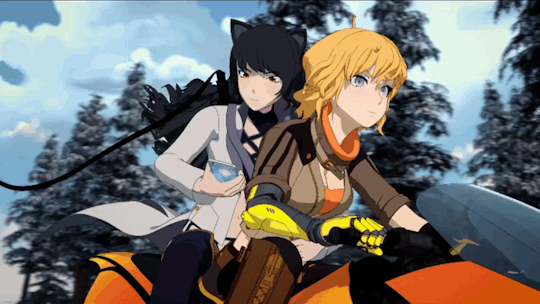
Symbolically, bumblebee even falls into the water to show that it is in fact the bees' river.
There are also other similarities. For example, Mowgli cuts the leader of the dogs' tail and uses it to provoke the group and bait them towards the bees. Blake and Yang instead try to take away Adam's sword:
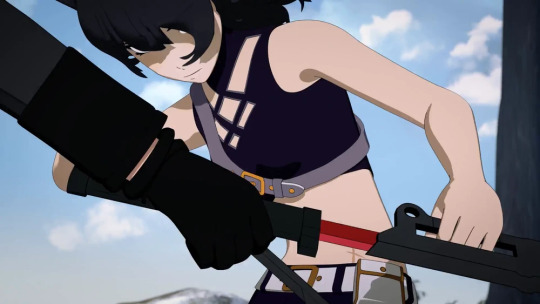
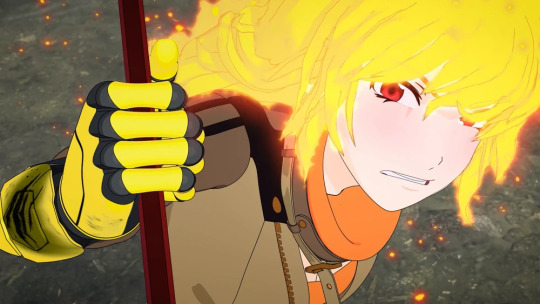
And Yang uses it to lead Adam to where Blake ambushes him.
Finally, Mowgli and the Won-Tolla kill the head of the pack together:
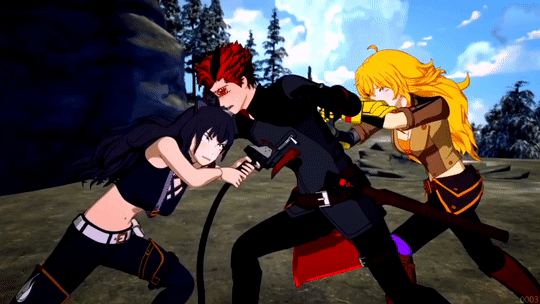
Sure, Won-Tolla dies, while Yang survives. Still, in both situations the emphasis is on the necessity to even the score:
You may have taken the lead but I'll even the score You won the battle you won't win the war Not now and Nevermore
Both the wolf and our golden beauty are able to pay their "blood debt" and find peace.
Kipling's story ends with Akela's death. The wolf is one of Mowgli's parental figures and his passing marks the end of the book and the beginning of Mowgli's new life. After all, he is the one who advises the boy to go back to the humans.
Similarly, Adam's death represents a new beginning for Blake, as it grants her freedom.
FREEDOM IS FINALLY HERE
Nevermore Will I be afraid Nor will I run away It's behind me Freedom is finally here
Throughout her arc, Blake grows close to several faunus, who offer different takes on freedom. It is thanks to them that our cat girl finds "her own liberation".
Initially, Blake wishes for everyone to be free and equal and yet she herself is a prisoner of her own shadows:
Blake: I joined the Academy because I knew that Huntsmen and Huntresses were regarded as the most noble warriors in the world. Always fighting for good. But I never really thought past that. When I leave the Academy, what will I - how can I undo so many years of hate?
She feels obligated to solve all of the faunus' problems on her own. Basically, she is ready to free others at the cost of chaining herself.
Adam is her opposite. He wants no limitations nor boundaries and is willing to enslave others to succeed. He starts with Blake herself:
Adam: What, do you want me to just abandon our cause? Like your parents? Blake: No! I'm not saying that! I… I don't know.
He traps her in an abusive relationship with no way out.
To escape Blake needs the help of a free spirit:
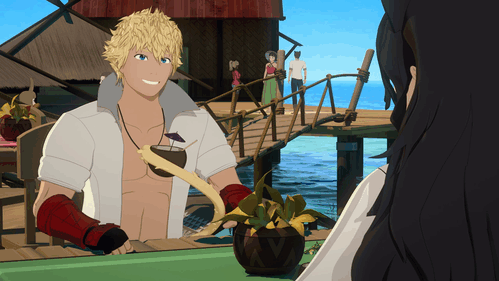
Sun alludes to the bandar-log (monkey people). They don't follow any rules, they often change their mind and they're unpredictable. This description fits our Monkey Boy to a tee. Sun is air-headed and does what he wants with no regards for rules. He is a stowaway who runs from the police and happily steals some food for him and Blake. This is similar to how Kipling's monkeys act.
It is just that in The Jungle Book these characters are framed as negative. They kidnap Mowgli and are eaten by Kaa the python. In RWBY instead, Sun is one of Blake's most trusted allies and the two of them defeat a giant snake together:
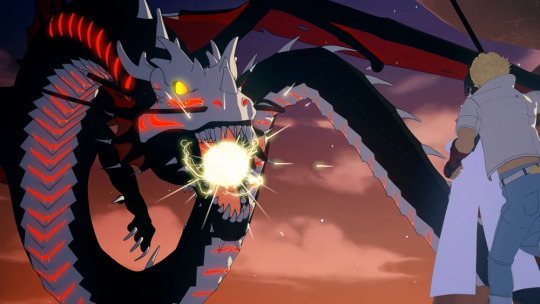
More importantly, Sun teaches Blake about freedom:
You're free to do the things you want But listen, so am I I've made my choice And now I'm making mine
Blake is free to make her own choices, but her friends are free to make theirs. She is free to leave, but Sun is free to follow her and to help her.
This mentality eventually gets through to Blake and even helps her save Ilia:
Blake: I'm going to try and help her the way you helped me. You showed me that sometimes you need to be there for a friend even when they don't want you to be. I was drowning in guilt and fear, I tried to push you away, but you didn't give up on me. And I can't give up on Ilia. It's about time I saved my friends for once.
Ilia is really the opposite of Sun. If Sun is free and believes everyone's free, then Ilia is trapped and steals others' freedom away:
Ilia says to a tied up Blake: We all have to make sacrifices for the greater good, no matter how much it hurts. (...) I was always jealous of the way you looked at him (Adam). I wanted you to look at me that way. But we can't always get what we want!
She represents the part of Blake who is a prisoner of the past. This is why Blake eventually frees her in two different ways:
Ilia: I still don't feel like I deserve the freedom you and your family granted me.
Ilia is given both physical freedom (she isn't arrested) and mental freedom (she joins a new liberation movement).
Going back to Sun, he helps Blake free herself and others. This may be why she decides to make the new symbol of the White Fang yellow (Sun's color):
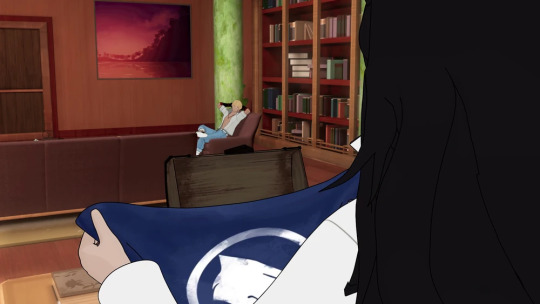
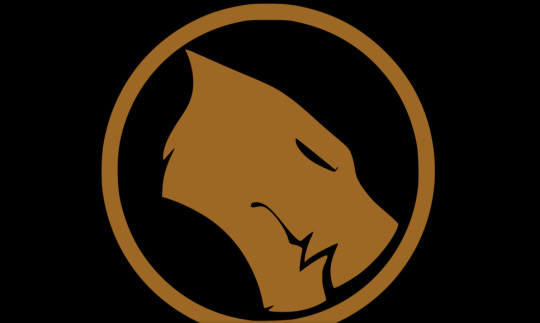
Still, Sun's mentality is not perfect:
And his teammates already had plenty to hold over his head. He wondered when they were going to get over it. So what if Sun had gone off to do his own thing for a while? That was just the kind of guy he was; he had to go where he was needed. The gang had been back together for weeks now, but it still hadn’t blown over. Scarlet was acting bossier than usual, and Sage had been giving Sun the silent treatment. At least Neptune always had his back, but something seemed to be off with him, too, no matter how much he insisted that everything was fine.
Sun's refusal to apply any kind of obligations to both himself and others is healing for Blake, but it doesn't work for long term relationships. If you share a bond with someone, you have responsibilities toward them, like they do toward you. Sun has instead the tendency to run away from these kinds of duties. He is incredibly generous with Blake, but he also leaves his team with no warning.
His relationship with Blake is summarized by this line:
Blake: Be careful. Sun: No promises.
Sun isn't gonna ask Blake to make any promises. She can come and go as she pleases, but Sun himself can and will do the same:
Sun: I go where I'm needed!
This is very similar to how the bandar-log act. They do not follow the Law of the Jungle, which means they are not bounded by it. Still, this also means they can't build strong relationships with the other animals. Mowgli and his friends instead do follow the Law, which makes them truly free.
Sun is a great friend to Blake, but our cat girl's freedom isn't found in the absence of obligations. It lies instead in the choice to share a vow with a person ready to reciprocate it.
I made a vow I'm not alone Not dying now we're protecting our own
BY THE BULL THAT BOUGHT ME
Mowgli's story starts and ends with a bull. Bagheera offers the wolf pack a bull for them to accept Mowgli. This means the boy is forever in debt until another bull is sacrificed. This is why when Mowgli chooses to live with humans, Bagheera kills another bull. The panther is paying the debt, so that his friend can leave the jungle and be free.
Blake's arc starts and ends with Adam, a bull faunus. She is introduced at Adam's side and with time he becomes the main obstacle between Blake and her new life. In particular, Adam reproaches Blake for breaking her promise to him:
Adam: You know, she made a promise to me once. That she'd always be at my side. Heh, and look how well she's kept it.
Like Mowgli, Blake has still a debt to pay, which is addressed and solved in Bumbleby's fight against Adam:
Yang: Did she make that promise to you? Or to the person you were pretending to be?
Yang doesn't dismiss Blake's vow to Adam, but points out it isn't valid because Adam tricked Blake and did not reciprocate her promise. In other words, the relationship between Adam and Blake is unbalanced, which makes it unhealthy.
Blake and Yang's bond is different:
Blake: She's not protecting me, Adam. And I'm not protecting her. We're protecting each other.
It is a pact of mutual trust and love.
The metaphor is very clear. Blake's promise to Adam represents their romantic bond, which needs to be cut, so that our cat girl can start a new relationship with Yang. Bumbleby vs Adam being a chemical wedding just makes this symbolism stronger.
Blake disowns her vow with Adam and takes a new one with Yang:
Blake: I have people who actually care about me, and I promised I'd never leave them again. So I'm not dying now.
Just like Mowgli pays his debt to the jungle with the death of a bull, Blake is fred by her previous vow thanks to Adam's death. In this way, Mowgli can join the other humans in spring and Blake can start her new love story with Yang in Mistral (the Kingdom of spring):
Blake: I… I am not going to break my promise, I swear.
After Adam's fall, Blake affirms her promise to Yang once again. This is Blake's wedding vows to her golden beauty.
The end result is that Blake finds freedom and a new life full of gold and light by integrating with Yang (humanity):
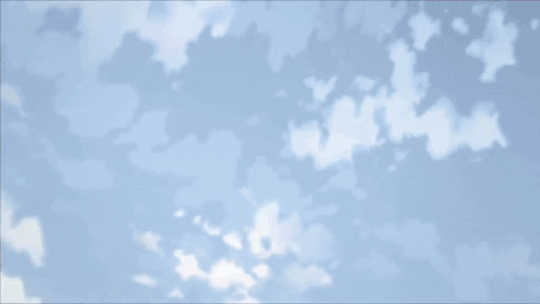
At the same time, she is and will always be a faunus (a child of the jungle) and is not going to betray the spirit and ideals of her people:
Blake: A simple life wouldn’t be my life! My family, my friends, my culture. I belong to them, just as much as they belong to me. To give that all away wouldn’t be simplicity, it would be betrayal.
Just like Mowgli isn't forgetting the Law of the Jungle.
In conclusion, Blake's Jungle Book is a tale of freedom, both political and personal. Blake realizes she can't be free by imprisoning others, but also that she herself needs to be unchained to truly help people. She decides her own path as a bridge between humans and faunus and this choice itself is freedom.
#rwby#blake belladonna#rwby meta#once upon an allusion#greenlight volume 10#my meta#adam taurus#ilia amitola#sun wukong#yang xiao long#bumbleby#ghira belladonna#sienna khan
140 notes
·
View notes
Note
Personally I do think the most common thing abt people regarding udg is that it has the best villains in the franchise considering that 1. They have actual motivations and 2. As children were manipulated both by junko and monaca but are still capable and willing to commit atrocities. They’re not ‘flat’ villains like how junko just wants to cause worldwide despair with little reasonable motivation.
I think its also important to note that udg is good for context because it feels like it makes the games feel tied together and we actually see what’s going on in the rest of the world rather than just hearing about it happening and being like ‘oh okay that’s a thing’. We finally got a game that had the ‘show, don’t tell’ of the tragedy. If the dr team had even slightly better writing skills and morals (and less.. questionable scenes and save points) I feel like udg would have been a really well rounded game.
SPOILERS BELOW
and for a game that only actually kills a single member of their main cast it still feels like everyone’s in danger. And I do like that while they massively redeemed toko’s character they didn’t just make her perfect; she’s still a huge simp and a petty prick by the end of the game, but she does go through a lot of development.
Personally if they had better writing I would have loved to see a sequel where the girls and the WoH (minus monaca) have to try and rebuild everything while obviously still dealing with the moral conflict of these kids (seeing as in that one snapshot of the anime we see that they are working with toko and komaru already. Also monaca goes to space in an Amazon delivery van which is. Something). I want to see the other survivors being against their efforts: and considering what went down in chapter 4 of dr 1 I’d really love to see aoi be a main antagonist considering that 1. She and toko already hate each other and 2. She has very good reason to be vengeful all things considered with yuta (who everyone just seems to forget about. When komaru said she could see ghosts I was waiting all game for him to come back as a new mechanic. I think he deserves to be relevant. As a treat).
SPOILERS OVER
anyways, ramble over
Dude you're so on point with like. All of this. UDG is probably one of if not the best part of the entire series based off its character building and how well it builds upon the Tragedy, plus the best protagonist the series has ever had, and so many people just never played it because it was marketed as a side game and not a main installation and I HATE IT GO PLAY UDG IT'S WORTH IT I PROMISE-
I'd never thought about having Hina as an antagonist in a sequel but that's actually a really cool idea! We did get a good look at her more vengeful side once before so it'd be great to see that part of her again
Forever angry that instead of a UDG 2 we just got a singular ep of DR3 with Monaca fucking off to space and That's It
#danganronpa#ultra despair girls#danganronpa ultra despair girls#drae udg#toko fukawa#udg monaca#aoi asahina#yuta asahina#komaru naegi
13 notes
·
View notes
Text
“Ted Lasso” critical opinion here, but while I still enjoy the show and make time to watch it within a day of it coming out, they’re so conflict-shy about having anyone be the central villain, or even the central antagonist of an episode, that the whole plot has gone to mush.
(Now just to be clear, I’m criticizing the show’s dramatic structure, not the relative merits of the characters or their individual stories. That’s subjective and people love their favorites and that’s fine. But the show, right now in Season 3 as of episode 8, has no villain or central antagonist and thus no plot other than a vague ambling towards the direction of the final game.)
Rebecca was a stellar villain in Season 1. Her having a redemption arc and a sympathetic backstory doesn’t make her any less structurally the villain. Her role as the villain glued the season together, it offered a powerful focusing factor to the arc and it gave someone for Ted Lasso as our protagonist to face off against, even if he didn’t always know it. As the villain she was the gravity that pulled the story together.
Though it is much panned by many writers, the fact is, having a hero, villain, and a love interest with a central plot of the hero keeping the villain from getting what they want (and an emotional B plot of everyone getting what they need even if it wasn’t what they wanted at the start) is a really strong central story that propels a narrative. Combining villain and love interest is possible and also compelling but notice, whenever Rebecca was in the role of love interest in Season 1, Rupert was brought in to pick up the villain slack. Rupert’s presence kept a villain in the picture to propel the story when Rebecca was busy in that other role.
Now, Rupert has had some walk on moments of villainy in S2 and S3 since then, but besides those moments… who the fuck is our villain in season 3? Who is the plot arrayed against? What is our hero, presumably still Ted, trying to achieve? What does Ted want? Honestly, what does anyone want at this point that they’re taking material steps to achieve and that is being kept from them by a villain or antagonist of some sort? What is this plot about other than Richmond maybe stumbling its way into a championship by the end?
The lesson of Rebecca being so beautifully humanized at the end of S1 and getting that wake-up call from Higgins to stop acting like a cartoon villain and realize everyone here is human was a fantastic story beat. But the lesson from it wasn’t that there shouldn’t ever be a villain. Rebecca having a redemptive moment of realizing she’s been an ass to everyone who actually cares about her, that she’s sacrificing her present to get revenge for her past, is still absolutely beat for beat a standard part of a villain arc. She’s still a villain even if she gets redeemed at the end. S1 had a strong central story of hero vs villain as a result and the humanity of the characters in an otherwise cartoonish plot was what elevated the story to critical acclaim.
Now… everyone is just too damn humanized. And the thing is, you can still humanize people and have them be antagonists, or even outright villains! You can have story conflict that isn’t a huge angry fight, it’s just different people who want different things that are in conflict with what the other person wants and prevents them from getting it. It’s actually a completely natural set up for “Ted Lasso” because it’s a sports story for goodness sake. Everyone wants to win! Everyone has a good reason to win that’s just as valid as anyone else’s. Everyone is working hard to win the trophy and has their own reasons to deserve it, and that puts good people in conflict with one another.
But no one is the villain in Season 3, or even a consistent antagonist taking material steps to stop the hero from getting what he or she wants. Not even Nate, who was perfectly set up to be the dark mirror to Ted this season, with a cold, severe coaching style based on a lifelong understanding of the game, but with no social skills to balance it. A true head to head of the Lasso method vs the method of his protege, the man he gave a chance to shine when no one else did. (Don’t even get me started on the dropped potential for a plotline that takes into account Nate’s age and the racism he undoubtedly felt in his career to still be a kit man at his age, a role that was next taken by a white teenage boy, and despite the skill he’s shown as a coach the minute he was given a chance. Where did all of that go? Nate had legitimate grievances of being overlooked and then achieving his dream despite this and being good at it, but I digress.)
Maybe we’re being set up for a banger finale, a few hours of really tightly plotted story that brings this all together, and we’re just killing time until we get there. I certainly hope so. Because story tropes exist for a reason. Keeley and Roy and Jamie’s love triangle story in S1 was a standard romance trope but it was well applied and that made it work. Ted vs Rebecca is a trope right out of Air Bud, for goodness sake, but it worked because it was well applied.
There’s no tropes happening right now in S3. There’s no plot. There’s no villain. There’s nothing for this story to coalesce around. Maybe it’ll all come together for a banger finale but man… man, I really hope it does.
65 notes
·
View notes
Text
okay look i know its in bad taste to spend this long dogging on other people's ships but i've just been having a lot of thoughts about this today.
the idea that suselle is a foregone conclusion is stupid! and that's not because toby fox is just trolling, he's not that dense to pull a pointless bait and switch. its stupid because part of deltarune's narrative is about narrative, and about predestiny! beads on rails, puppets on strings, dark worlds as fiction, all this!
like, let me use my ralsology degree to paint a picture for you here. ralsei, as a symbol, represents traditional RPG stuff. he's been suckered into a worldview where darkners are NPCs, less than people, and ultimately exist to serve both the player characters and the broader narrative. his perception of right and wrong is childish, and he offers simple-minded platitudes as explanations. ralsei believes that everything they do is predestined to some degree, that while they can change how they act and how others feel about them, their relationships, their arcs, their battles, these are all laid out in advance.
and he's wrong about all of it.
darkners are very much people with intricate personal lives, hopes and dreams, complex motivations behind their actions. right and wrong is more complex than, well, right and wrong, and their quest is very much not predetermined, as we can see on snowgrave.
what's more, deltarune's narrative seems to be about how ralsei is wrong. with the secret bosses, and the beads on rails and all that stuff. kris is an unwilling protagonist being forced down a path they don't want to go down. darkners are shown to be people, and yet it seems like the DELTA WARRIORS will be forced to treat them like they aren't. susie herself rejects every narrative and gameplay convention ralsei lays out for her, from the concept of being nice to enemies on principle to the player's sense of choice in the game they're playing.
...and you mean to tell me you trust Ralsei here?!
yes, that's right! ralsei, guy whose worldview is making everything worse for everyone, himself included, is a suselle shipper!
if you go back to the ferris wheel billboard after the susie intermission, ralsei will think to himself that susie must still be thinking about her ride with noelle.
and guess what HE'S FUCKING WRONG. all susie cares about is what the hell a ferris is!
(this isn't to say susie didn't enjoy the ride or doesn't sometimes think about noelle, just to be clear.)
i think there might even be another scene with the same premise but i can't remember.
point is, ralsei expects after a scene he knew was gonna happen that susie would be thinking about noelle, and he's wrong. its likely ralsei believes that suselle is gonna happen, because its part of susie's arc or something.
and considering his worldview hurts everyone, and susie rejects it wherever she can, and generally the story is about how the characters in the story reject the paths forced upon them by the narrative, are we really saying that ralsei is right about this one thing?
saying "susie likes noelle but doesn't know it yet" just feels so gross sometimes! like, come on! you're basically doing exactly what ralsei is doing, saying that its a foregone conclusion that they'll end up together, and that if susie doesn't show signs of having feelings for noelle (even in a goddamn non-canon valentines email!!) its because she just hasn't realized that that's what she wants yet. its almost like saying you know what she wants better than she does, that she'll be happy doing what you want her to do, because that's just how it is.
and i know susie deltarune isn't real but come on! there's a clear parallel here between the narrative imposing arcs and labels upon characters against their will which they then fight against, and imposing romantic feelings onto a character they don't seem to have because that's what's best for you!
i'm not going to say suselle isn't going to happen, but i am going to say there is NARRATIVE REASON for it NOT to happen, because the in-universe narrative, the legend of delta rune, fate, predestiny, WHATEVER, seems to be the bad guy here!
#deltarune#suselle#to sum up: suselle happening stands in direct opposition with the themes of deltarune
10 notes
·
View notes
Text
I discussed a few ideas briefly, but I want to dive more into the idea of Bitil as the Makuta of the Western Chain of Southern Islands (AKA Mata Nui’s right leg), and how we could work with what we have on him and his domain in canon to reimagine the character as the quintessential Makuta of HIS story, in another reimagining of the Bionicle mythos.
Something I noticed about Bitil is that he is one of the few Makuta whom we know regarding the Rahi he creates; He specializes in insects, which makes him unique since he’s the only Makuta whose appearance in Karda Nui is relevant outside of there. Gorast and Krika aren’t known to make insects, nor are Antroz or Chirox reputed for constructing bats; But Bitil is an insect.
What are insects? Things of many; Many eyes, limbs, eggs, in other words themselves. Small and puny and insignificant on their own, but we know plenty of how insects can swarm to become much more than the sum of their parts. Bitil is also like this; He’s a fairly puny Makuta compared to the rest, but his Mohtrek allows him to summon several of his past selves to even the odds. On his own, Bitil isn’t much, but with himself...!
And his domain also continues that motif; It’s a bunch of small islands, considered barren and worthless by Kalmah and Bitil. A bunch of smaller things coming together to be more; Isn’t that what Lego is all about? So just as Teridax represents the parts bin, Bitil and his story may be about the nature of Lego as a building element that combines... This can go hand-in-hand with the concept of Kaita and other combiners, which was more prevalent in the early years of Bionicle that these reimaginings are aiming to take cues from.
Additionally, Bitil’s domain is an island chain; A bunch of smaller landmasses in a larger ocean, just like the region Polynesian and Maori culture originated from. And since those cultures influenced Bionicle’s early years a lot, one could return to that vibe, with consultation from actual Polynesian writers and artists. Bitil’s bug motif may not just be for the sake of “more than the sum of its parts” either, we could also take it literally and make the protagonists and bestiary bug-themed, like Hollow Knight for example!
Again, the Vahi plays a bigger role here; It was one of the first masks ever designed for Bionicle, in fact it may have even been THE first (that was brought into the final product) I believe... Our big bad, Makuta, is a being who uses the power of time to summon echoes of his past selves, creating a clear line of progression for the audience to keep track of. He may want the Vahi to boost his powers, and/or it’s a way to counteract Makuta’s time-bending abilities.
In addition to Hollow Knight vibes, we might also take a bit from, say, Pikmin; Again, another game about lots of tiny little guys coming together to defeat their larger foe. The protagonists encourage the Southern Islands, normally disparate and minding their own business, to band together to rise against Makuta; On their own, maybe they ARE nothing. But together they’re so much more than Makuta! And Makuta, his group solidarity is really just himself; An echo chamber that is unequipped against a far more diverse group.
I also think it’d be cool to explore another post I brought up, involving Bitil’s past self being horrified by the person he becomes... Imagine a storyline where Makuta has this prisoner named Bitil, whom he tries to impress and convince. Bitil, who is isolated from the rest of the world, reflects on his own past and history... And the big twist comes when the viewer finds out that Bitil was summoned from the distant past, and Makuta is in fact the being he will become.
Bitil in G1 has a major inferiority complex and thinks everyone’s out to get him, hence his bad lot in life, when in reality it’s because he’s incompetent and there isn’t much to him. So we can play up the jealousy angle for Makuta here, and how he still wants approval even from himself in a sense.
As I said, the Mohtrek showing successive versions of Bitil could also connect to the idea of the evolution of Lego and a MoC, how you upgrade and change it constantly; So there can be a discussion of transformation, which is topical to bugs who are known for their pretty extensive metamorphosis. Perhaps Makuta is a being who regularly undergoes metamorphosis, indecisive about the form he takes; But this just makes him stronger, since when summoning past selves, he has even more to choose from!
He’s constantly evolving, hoping to reach a perfect version… but maybe there isn’t a perfect version, maybe creativity, diversity, is the spice of life! Makuta’s group is monotonous, the protagonists’ are different. There is no end goal or right way, things keep going, just as time marches on.
Change is probably a big theme, because Lego constantly transforms. Makuta reassembles himself, and since the Vahi has such prevalence, let’s thrown in some time shenanigans too; Like time travel or time loops, temporal distortions bring echoes of the past that haunt the setting, so perhaps past versions of Makuta each terrorize their own island, tempt people with the nostalgic past or a bright future. The Vahi is necessary to seal the holes in time that allow Makuta to summon long-extinct monsters and other threats, sending them back to where they belong, fixing events left unfulfilled, and repair time before it collapses.
Makuta may hope to exploit the stream of time to summon from the future, too… Eventually reaching the ‘end of time’ he believes in. And there’s a time limit for our heroes, since the longer Makuta exists, the more past selves he has to summon. In the end, Makuta puts up a big fight by combining all of his past selves into a massive kaita, necessitating our protagonists to form their most ambitious one yet. There could be a twist about time travel akin to the Masks of Power: Legacy fan game, like maybe the Toa were summoned from the past or future, and the Turaga are themselves from another point in time.
I don’t think we’d have the Great Spirit Robot twist, but maybe there’s an homage such as… A giant mountain island that resembles the bent knee of a Titan, referencing Bitil’s domain in G1 being the right leg of Mata Nui. This could be Makuta’s lair.
I guess the story could be described as… Ocarina of Time x Hollow Knight x Pokemon Gen 7. Maybe Pokemon Gen 8 too, based on what I’ve heard about Paradox pokemon.
22 notes
·
View notes
Text
slurps tea loudly
okay as I recap this I am gonna try to navigate my emotions
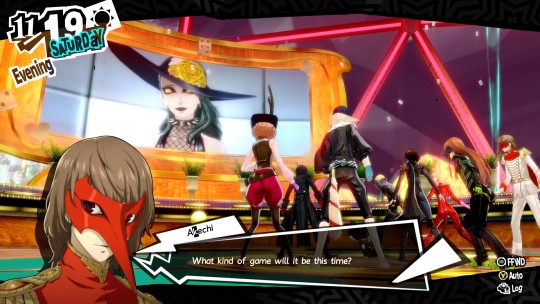
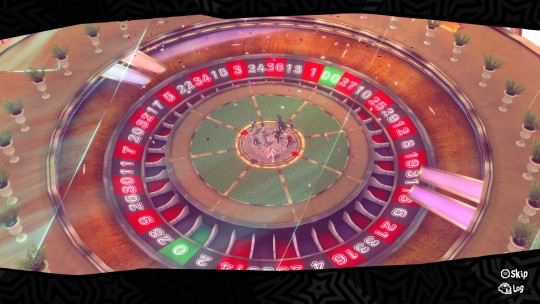
Oh its the Fortune Arcana boss from Persona 3 but not as good! But the whole point is Sae's cheating anyway so it's not supposed to be fair or fun, that's fine. After proving she's cheating, she turns into her monster form.
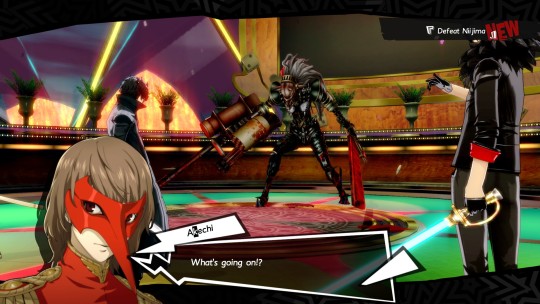
She looks like if the SAW movies were a person, jesus christ.
Anyway, lets get to the meat of the situation; the big escape.


Even though Sae's treasure was stolen and the Palace Ruler has been defeated, the casino is not coming apart like normal. (Which is because the treasure they're taking is a decoy, but more on that later.)
And finally we return to the cold open, which admittedly: I fucking loved this. I love that nothing is changed at all, it's just the same sequence again, but now you have context for what the fuck is happening. Now the face the player can use their persona makes sense, now the presence of shadows in a 'real' location makes sense, everything comes together.
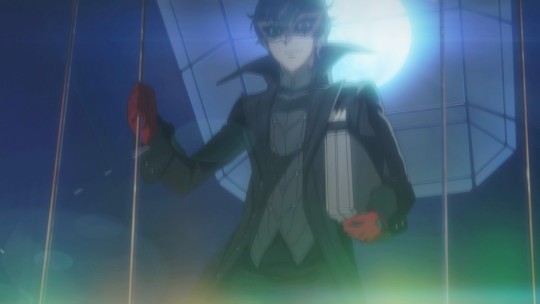
No matter how I fall on my opinion on this game, I have been convinced that Joker is the best protagonist of any of these games. With the unfortunate exception to the lack of Gay Options he gets, he is an enormous improvement from P4MC in every metric. I know who this character is, even absent my own input, and he's weird and funny and kind of a huge bitch and salty as the Dead Sea.
Huge fan.

This sequence becomes such a victory lap. Like, I'm still figuring out how I feel about the Whole Thing, but this moment of handing the player control and going "Hey, remember this?" and letting them fucking RACE to the end in the hopes of finally figuring out what the fuck is going on, it's a pretty clever trick. /slow claps for the devs
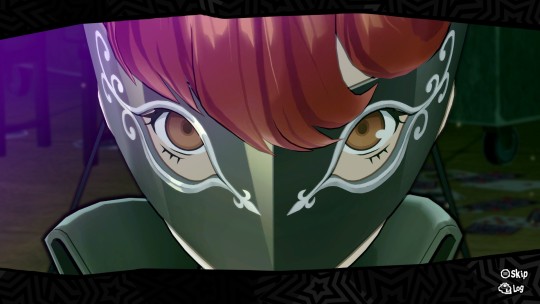
It's still fucking weird that Kasumi is here tho.
Also: Kasumi has the worst mask of everyone in this game by far. Every time i see it I wanna give her literally anything else.

I do wonder if its a Bebop reference. Oh well.
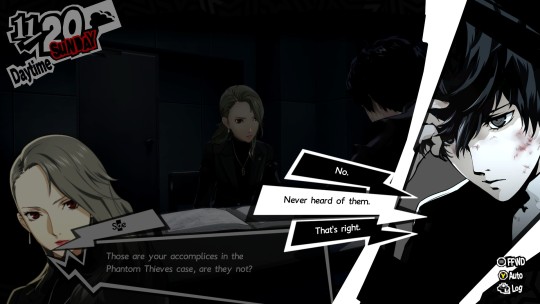
In the present, Sae offers Reverie a plea deal if he gives her the other Thieves. No go.
His beat-up face is so soft and sad, I just wanna hug him close. He needs a bag of peas against his cheek and a hug from dad so bad.
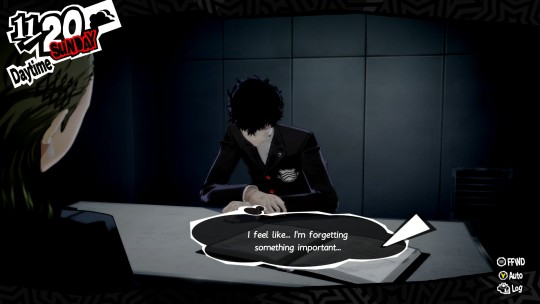

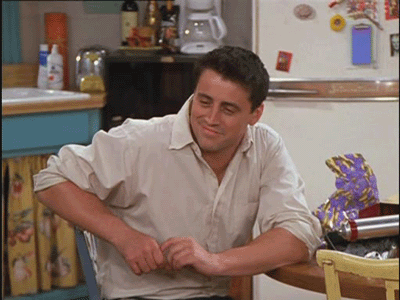
holy shit the fucking pancakes. Morgana was the one demanding pancakes when the team was talking in the hallway before the studio recording and Akechi walked in saying he heard something about pancakes. He couldn't have heard that unless he'd been to the Metaverse before. He's always known what Morgana's saying from the moment everyone met.
HOW DID I NOT NOTICE THAT
That's really fucking smart honestly. Like, I sussed out Akechi because I'm the audience and I know tropes and story structure so it absolutely had to be Akechi. (Also there were a lot of other hints.) But I'm happy there was a hard piece of evidence for the characters that was more concrete than "have you MET him, he's a murderer."

As everyone and their dog guessed, when Futaba grabbed Akechi's phone, she slapped one of her wiretaps on there. That part's easy.
After that is where things get tricky.
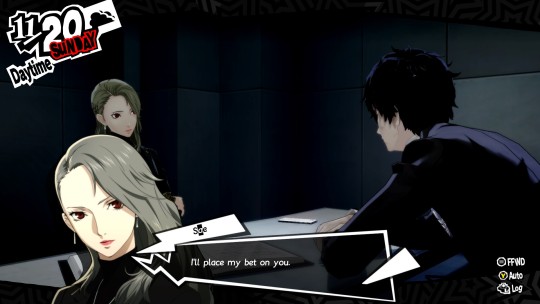
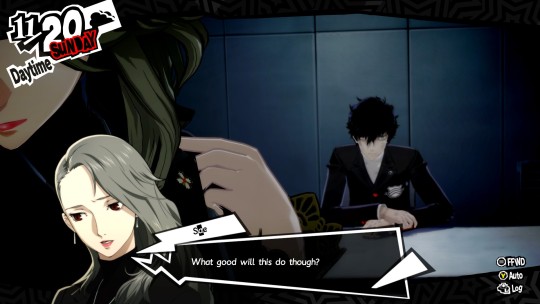
The last thing Reverie does as Sae leaves the room is convince her to take his phone with her and to show it to Akechi.

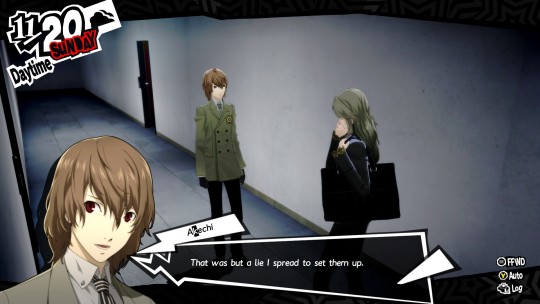
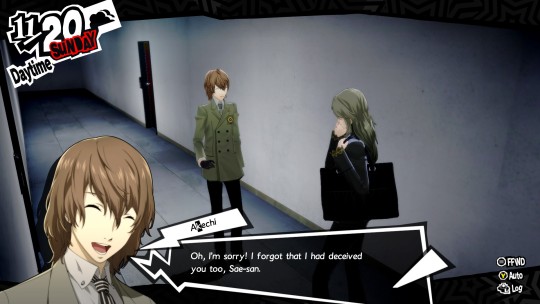
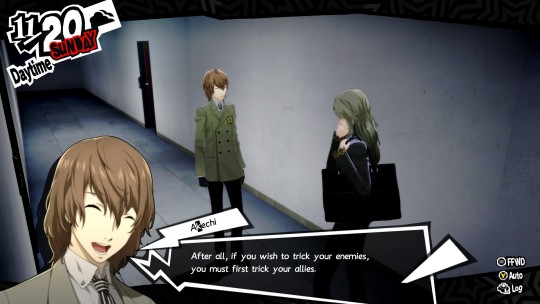
I am completely convinced that no one in this game has met the real Goro Akechi. Not Sae, not Shido, not anyone. That facade is made of four layers of reinforced cement and the windows are all mirrored glass. He's kind of the inversion of Adachi, who looked like there wasn't a since thought bouncing around in his vacant gaze. Akechi is nothing but loud thoughts, but the container is soundproofed.
Also, it occurs to me right here that someone is directing Akechi, someone has a hand on that leash, and I wanna know what the hell keeps Akechi from spinning around and killing that guy.
Anyway, Sae shows Akechi the phone, he's like ?????? whatever? and they part ways.
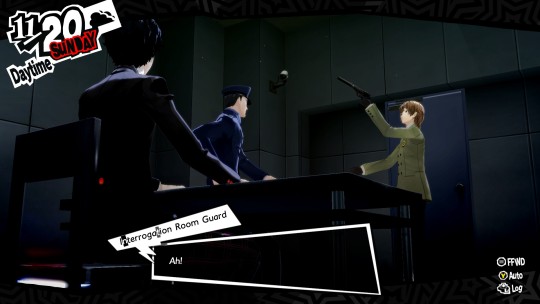

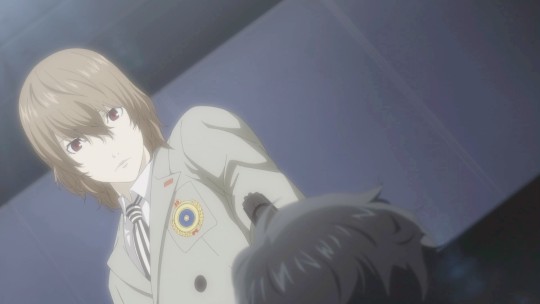

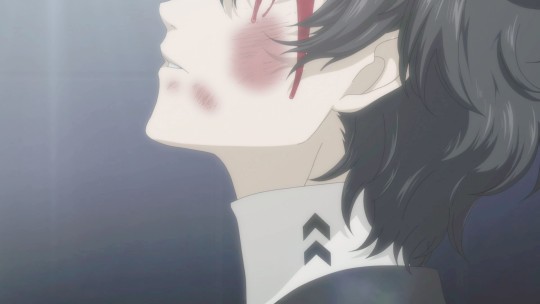
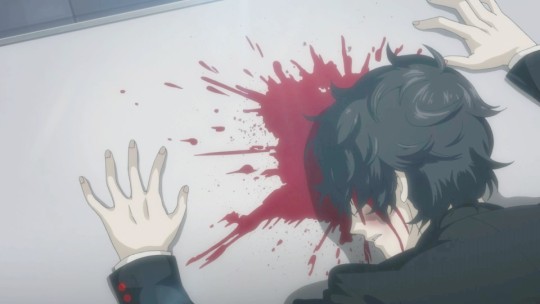

Akechi waltzes in, deep-sixes the guard with his own gun, and shoots Reverie in the head.
Your hair has never looked worst, Beige Boy.



"A TRULY SHOCKING TURN OF EVENTS," MEMBER OF LEOPARDS EATING PEOPLE'S FACES PARTY SAYS AFTER LEOPARD SHOCKINGLY EATS HIS FACE.
Out of images.
46 notes
·
View notes
Note
what makes steel ball run your favorite jjba part? <3

HIIIII GOOD JOJO MORNING and thank you for giving me a question to ponder over my toast this morning hehe 💏☕️
I've said it before but the main reason I love jojo in general has more to do with how fun it is to watch araki evolve his approach to storytelling and his art style from part to part...like jojo is silly and fun and by no means a perfectly executed story, but I think araki is uniquely radical in his creative approach in a way that's thrilling to watch! a big part of my enjoyment of sbr stems from the fact you can tell it's the product of 20 years of araki experimenting with his approach to major & minor character writing, fight construction, pacing, weaving in & delivering on themes, working with setting & his chosen genre in an engaging way, using paneling & art style to create atmosphere, etc. and he's able to deliver on nearly every front. it's by no means a perfect story (beginning is painfully slow, the zombie horse & magic thread that appeared exactly once, final fight happening AFTER the story's emotional climax, etc.), but when considered within the context of parts 1-7, it's his most well-rounded & complex work by far imo - that's played a huge role in my enjoyment of it!
and then of course there's specific aspects to steel ball run that are kind of like catnip to me personally!
johnny not being an easily likeable protagonist, and who has a character arc more complex than "selfish guy learns about the meaning of friendship" - too much to go into for this ask, but I particularly love how at the start of sbr johnny's perspective on his life and purpose is coming from a place of deep pain & a feeling of helplessness over his ability to exert control over his life...there's no short, clear path to fixing the psychological impact of his cold upbringing, the guilt & sense of responsibility he felt for his brother's death, the way the artificial sense of self-worth he obtained through celebrity backfired horribly on him, the abuse and abandonment he experienced after he was paralyzed. his arc isn't about trying to leave all this behind and transforming him into a perfect, fixed person - it's a bumpy road!! even as he grows, throughout sbr we see him continue to be selfish, irresponsible, lacking in confidence, overly reliant on others, even violent. and of course he has to grapple with obtaining and losing the corpse parts over & over again, and what that implies for his internal sense of meaning. I think the conflict he has about valentine's offer in their final fight (trying to avoid spoilers about specifics but AUGH) is one of my favorite character moments in all of jojo because it perfectly illustrates how despite all the growth he's experienced with gyro during the race, there is still a part of him that will have to fight against the impulse to let his pain, guilt, and perceived lack of agency drive his actions. by the end of sbr he's become a person who is more at peace with himself, someone with a quiet confidence and sense of purpose and agency he's had to build from scratch - he's taken the long way, but the shortest road is the detour. best jojo forever TO MEEEE
johnny & gyro as co-protagonists as opposed to primary and secondary characters. they are hands down the best written jojo & jobro duo, one really could not carry the story without the other. the way gyro's lessons and how they're delivered (and to an extent, tusk's evolution as well) represent key points in the growth of johnny and gyro together and as individuals....crying wailing gnashing my teeth because there's a million things I could say about this but I'd like to direct everyone to this wiki entry because whoever wrote it composed an entire essay that says it better than I ever could
the sbr race as a west to east affair instead of an east to west affair, it turns the western genre on its head a bit in a way I find really satisfying. steel ball run masquerades as a story about adventure, but its emotional core is about the characters taking the long way back home to themselves - to do this, they have to go far away from their physical roots (both east of the race's starting point) and must take a long time to return. it adds an even more bittersweet element to johnny's final action of delivering gyro's body back to his family in naples. beyond being the decent thing to do, it's an act that honors the work gyro did to figure out how the ability and duty that's been placed on his shoulders can be used in a way that doesn't require him to abandon the compassion, optimism, and even the struggles that make him who he is - this is the emotional weight & character significance the act of returning home holds in sbr's story
the side characters are genuinely interesting, they have their own fleshed out reasons for being in the race that are actually relevant to the story. they're not all perfectly executed (justice for soundman -_-) but it makes for a much more dynamic feeling cast and a more engaging read!
the mid-to-late sbr art style is my favorite by far. it feels so cinematic and adds a sense of drama that's so fitting for the setting and genre! the real turning point for me was gyro's fight with ringo roadagain, where araki starts using more close up, highly detailed "shots" and adds dialogue only sparingly to create a palpable sense of tension appropriate for a shootout. it's spectacular
once you get past the first like 30 chapters (ouch) almost every fight has a sense of relevance and purpose to the larger story. sbr's fights might not be the most bombastic in concept compared with other jojo parts, but I much prefer a fight where the stakes can really be felt to a fight that seems to be stuck in there so araki can explore some fun stand idea. sbr gets bonus points in my book for having some incredible fights where the emotional stakes are especially high - sugar mountain arc's shootout with the eleven men, civil war, johnny vs valentine to name a few!
ARGH I could go on and on but these are just some of the big reasons sorry for the essay ily 💕💋
#when I say don't get me started...#sbr#jjba#(also disclaimer for everyone that I'm excluding part 8 when I compare sbr to other jojo parts bc I haven't finished it yet)
10 notes
·
View notes
Text
Slytherin!Dick and why it won't happen 😭
(from me)
I want to cry. Dick Grayson literally has all the traits, the charisma, the pride, leadership skills and loyal personality traits that Slytherin is literally one of the houses he should belong to (let's be really he could go for any of them). And since I haven't found a single Slytherin!Dick fic, I decided to write one on my own.
Since I've decided to throw the whole Batfam into this, and I've decided that Damian is the only one who wouldn't just replace Harry and rain chaos into the world, he's got the honor of being the same age.
Now, since this is supposed to be a Dick-centric fic, I have to go back in time, where it makes sense for him to join Hogwarts. Through a lot of researching shenanigans and rabbit holes, I've come to the conclusion that he would have started his first school year in 1977. ...do you know what also is in 1977? The First Wizarding War. Not only that, but Harry's parents and Snape are still at Hogwarts. Which, awkward, but more importantly, WE'RE IN THE LATER HALF OF THE FREAKING WAR!!!!! And that's no problem, really, outside of giving me fascinating material to work with, a very interesting environment and Hogwarts being canonically unattacked, this only has perks.
Except, this is a war about pure-blood supremacists. Specifically, Slytherin graduates are in an all-time frenzy about getting rid of everyone who isn't as genetically "perfect" as them, which is a moral battle that leads to most major decisions made during that time.
Do you also know what this means?
It means that Slytherin is a pool of bigotry right now.
And guess who really has something against discrimination?
Dick Grayson.
Do ALSO know what that means?
It means that even if Dick is a perfect Slytherin, right now, in this social climate, there is nothing he could possibly be other than a Gryffindor!!!!!! I DON'T WANT DICK TO BE A GRYFFINDOR, I LITERALLY MADE THIS FIC SO HE WOULD BE A SLYTHERIN, DAMNIT!!!!!! And I can't even change my timeline anymore (I really don't want to rearrange history, I'd have to fill the plot holes and I'm not interested) because I'm now invested in Dick living in the war era. Even if he's 11 and Damian isn't even born yet. I'm invested, I literally have Tim partially ready to go, and he's like 3 right now.
... welp, that was a rant. Honestly, I'm just upset that there's still not going to be a Slytherin!Dick fic. I mean, the moment Dick gets to be a Slytherin, he's the main protagonist, the light of the show, the center piece really. A sunshine charmer, good with words, a leader, smart, a Quidditch prodigy (because if he can fly, he's doing acrobatics up there) social goblin that patches people together and makes it work. Obviously, kid Dick has anger issues, his birth parents are dead, Bruce is on the other side of the continent, and he's once again living with entirely unfamiliar people. Dear reader, this story writes itself. Give this a friction of plot and it's running on its own. Which is what I would love to read and write. That is, if there wasn't this FREAKING WAR. I love this war, but damnit does the social climate divide everyone from the Slytherins. Which would be fine, but I repeat, they're bigots! There's no way that the sorting hat would look at what is right now a radical supremacist environment and put in an eager and determined equality fighter. That would be like throwing oil into a fire. The explosion would never be worth it. So, Dick would end up in Gryffindor (freaking Gryffindor! Listen, I'm prejudiced and as such have something against Gryffindors) because I don't believe in Hufflepuff or Ravenclaw Dick, and as part of an overeager house, he accidentally drags an army of friends with him. Which wouldn't be bad if I had any idea on what to do with them.
Either way, I'm now left with discovering what the frick I want to do with this. If anyone has a suggestion, I'm so open to it.
3 notes
·
View notes
Text
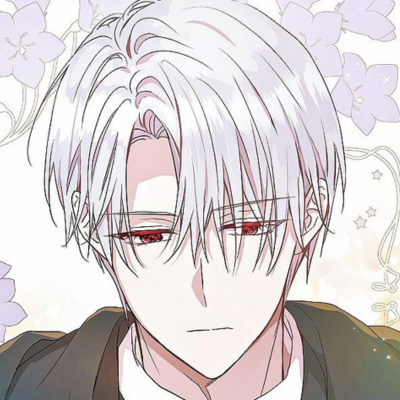

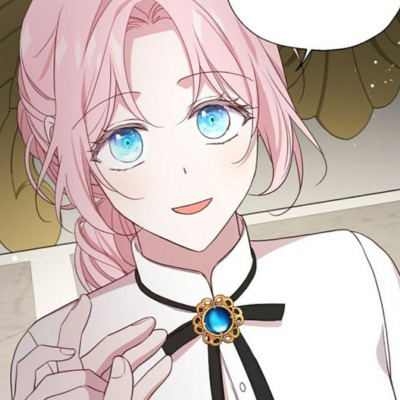
Flirting with the Villain's Dad
Source: Tapas
Creators: via, dalseul
Synopsis: Ack! I'm trapped in this webnovel, "Brigitte Wants to be Happy!" No prob, I KNOW what's gonna happen so I'll just—wait. I'm not Brigitte? I'm her aunt, Princess Yerenika?! Uh-oh. I'm stuck 20 years before the main plot... and everyone in my generation ends up tragically dead! Her parents, dead. Me, dead. Villain's dad, King Euredian, dead. A-ha! That's the key. I just need to prevent the villain from being born... time to break out some seduction schemes and flirt like my life depends on it!
Status: On going (march '24)
My rating: 4 - 🍓🍓🍓🍓
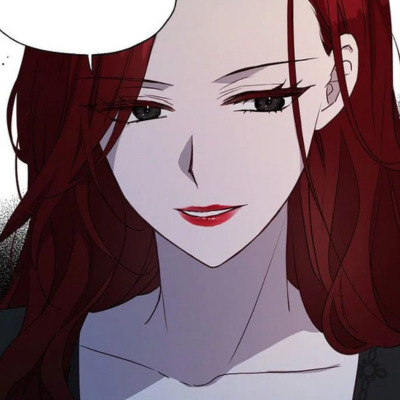

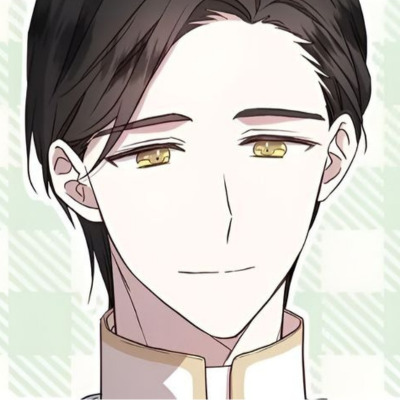
Images: Soleia (villain), Laurus (???) and Terry (priest)
Our FL, Yerenika, is reborn in a world she got to know about in a story she read in her past life; only she gets there twenty years before the story she read about begins. Her sister is currently pregnant with Brigitte, the future protagonist of that webnovel she liked and the girl who will be the one sided love of the future villain, the son of the King of Bellacourt and the dark mage Soleia. To save her new family, one of her favorite characters –Euredian King of Bellacourt– and herself from a tragic ending, she decides to take her sister's place in a nearby event that sets the horrible future into motion. Like that, Yerenika prepares to be kidnapped instead of her sister by the Euredian and be taken to Bellacourt as a hostage due to both Yerenika's father and Euredian having an unsolved political issue. Her plan? Use her time as a hostage to make Euredian, the future father of the original villain, fall in love with her and prevent the villain from being born.
I love this story for two reasons. Number one, Yerenika's character is very strong, and doesn't allow anyone to intimidate her. She's a woman on a mission to save the world, and she doesn't care how dense or annoying she has to be because there are more important matters at hand right now, people will die if she doesn't succeed. She's very determined and a little bit strategic, it's fun to see her try and try and try again without falling despirited to Euredian's cold heart, she's not after his love because she's enamored with him after all.
I will admit that later in the story there are things about the way she refers to others that I don't like as much, there are points where she becomes a little bit mean maybe. It doesn't happen as often so I just ignored those particular parts and kept going, but I thought maybe it would be necessary to point that out since I don't seem to be the only one who perceives it that way. I think it's part of her strong character, I just think it could have being approach differently.
The second thing that I really liked about this story is the two main character's dynamic. There is a third party in play, Soleia –who I really liked too–, Euredian's fiancee and the mother of the future villain. Soleia needs to marry Euredian as part of a plan of revenge against the empire, so of course when Yerenika comes around trying to steal his attention she has to be wary of her, but I personally never saw her as the main obstacle for Yerenika's and Euredian's relationship.
Euredian could be seen as the typical ML with a heart to defrost, but the reason he can't let his heart waver is because he takes his role as the king very seriously. Even when he comes to like this silly princess that is also very suspicious as to why she insists so much on marrying him, he can't just drop his responsibilities to his empire and its people, all the things he was taught since childhood, because of her. Not to mention that he's aware of the danger it would represent for her if he ever showed he cared for Yerenika. Euredian needs to marry Soleia as part of his responsibilities, and he's aware Soleia might harm the princess if he tried otherwise. So what makes the main obstacle for these two people to be together is how their stubborness and goals collide: Euredian wants to be a responsible and dedicated king, Yerenika needs him to to give that up to save the future. It's fun because the conflict that keeps their wills fighting it's presented in a way that feels genuine, and also because it eventually evolves in this dynamic where both are conscious that they like each other, but Euredian can't give everything up for the sake of love and they both begin to feel powerless about the situation.
I like Soleia as a villain. She has a story behind her that led her to a bad path, she made bad choices but she doesn't regret it, she's too filled with anger to regret anything. Laurus, a deity of this universe that comes into play later on, is someone I find very entertaining as this all powerful being that just wants to be left alone but suddenly cares too much about this random princess from another universe.
I would like to add that in this story in particular the fact that the FL comes from another world is important to the plot. Not only does her soul not completely align with her body, causing her to be sick most of the time, but it also comes to be a problem later on when her body starts to reject her, which was also very interesting to read about.
I like the story, the illustrations and the side characters. I didn't feel it was boring at any point. I will give it four strawberries. The story is still on going but I can feel it being close to the end (I'm about on chapter 140). I fully recommend it!
#flirting with the villain's dad#via#dalseul#manhwa#manhwa recommendation#yerenika#euredian#on going#tapas#review#romance#royal fantasy#magic#transmigration
2 notes
·
View notes
Text
The Princess and the Pilot: A Tale of Love and Courage
Introduction: Once in a while, a movie comes along that captures our hearts, transports us to distant lands, and reminds us of the power of love and courage. "The Princess and the Pilot" is one such cinematic gem that weaves a beautiful narrative against the backdrop of a war-torn world, where two unlikely heroes find each other and embark on a breathtaking journey. In this blog post, we'll delve into the enchanting world of "The Princess and the Pilot," exploring its captivating storyline, memorable characters, and the enduring themes that make it a must-watch.

The Princess and the Pilot (wiki)
A World in Turmoil: "The Princess and the Pilot" is set in a fictional world embroiled in a brutal and long-standing war. Amidst this chaos, we meet our two protagonists, Charles Karino, a talented pilot known for his exceptional skills, and Fana del Moral, the princess of the Levamme Empire. Charles, despite his humble origins, is entrusted with a vital mission: to safely transport Princess Fana across enemy lines to meet her fiancé and ensure a political alliance. Their journey, fraught with danger, forms the core of this unforgettable tale.

Unlikely Heroes: Charles and Fana couldn't be more different at first glance. He's a rugged and skilled pilot, while she's a delicate princess unaccustomed to the harsh realities of war. However, their differences only serve to highlight their strengths and vulnerabilities. As they navigate treacherous skies and evade enemy forces, their relationship evolves from one of duty to genuine friendship and, eventually, love. It's a classic tale of two individuals from vastly different worlds finding common ground amidst adversity.

A Love that Defies Borders: At its heart, "The Princess and the Pilot" is a love story that defies societal norms and transcends boundaries. Charles and Fana's love is born out of shared experiences, trust, and unwavering support for each other. Their love blossoms against the backdrop of a war that seeks to divide them, making it all the more powerful and poignant. It reminds us that love has the power to overcome even the most challenging circumstances.
Spectacular Aerial Sequences: One of the standout features of this movie is its breathtaking aerial sequences. The dogfights between Charles and enemy aircraft are beautifully choreographed, immersing the audience in the thrill of high-stakes airborne combat. The animation is top-notch, and the attention to detail in the aircraft and the sky is simply mesmerizing. "The Princess and the Pilot" showcases the magic of flight and the courage of those who take to the skies.

Themes of Sacrifice and Honor: Amidst the romance and action, the film also explores themes of sacrifice and honor. Charles's unwavering dedication to completing his mission, regardless of personal risk, reflects the values of honor and duty that are often associated with wartime. Fana's courage in the face of danger and her willingness to defy expectations for the sake of love speak to the theme of sacrifice for a greater cause.
Conclusion: "The Princess and the Pilot" is a cinematic masterpiece that weaves together elements of romance, adventure, and sacrifice in a beautifully crafted story. It's a reminder that love and courage can flourish even in the darkest of times. Whether you're a fan of aviation, romance, or gripping storytelling, this movie has something for everyone. So, take a journey through the skies with Charles and Fana, and let their story inspire you to believe in the power of love and the strength of the human spirit.
The Princess and the Pilot | Official Trailer
#1950s#japan#anime#movies#anime movie#madhouse#The princess and the pilot#1970s#とある飛空士への追憶#Toaru Hikuushi e no Tsuioku
2 notes
·
View notes
Text

Scar by China Mieville is the second book in the New Crobuzon trilogy, set in the fictional steampunk world of Bas-Lag, and while Scar is a direct sequel to Perdido Street Station, we follow a brand new set of characters.
Bellis Coldwine is trying to get as far away from New Crobuzon as possible after the events of the first book and has been granted safe passage on a slave trader ship in exchange for being the crew’s interpreter. Before she can reach her destination, however, they are attacked by pirates and taken prisoner on the Floating City of Armada. Curiously, Bellis and the rest of the crew are made citizens of the moving city and assigned jobs allocated to their respective fields. Bellis is now the city librarian, given a fair wage, free reign to go whatever she wants, and has her own accommodation. Everyone is treated equally on Armada, including the newly freed slaves, with the only condition being that they can never leave.
Not wanting to spend the rest of her life in exile, Bellis teams up with Silas Fennec, another passenger on the ship who needs to get back to New Crobuzon to warn the city of an incoming invasion. Together they conspire a means of getting a message to a New Crobuzon military vessel while getting dragged into a conspiracy involving the final destination of Armada.
Bellis is the opposite of the previous book’s protagonist, Issac Dan der Grimnebulin. Whereas Isaac was loud and friendly, but had a tendency to make himself the centre of the room and talk over his companions, Bellis would gladly sit quietly in a room and let people run their mouths off in order to gather as much intelligence out of them as possible, all the while internally judging them with her dry sense of humour.
Tanner is the other main character of the book and a Remade, a person who has had his body altered against his will as a form of punishment. His body has been grafted with useless octopus-like tentacles and over the course of the book he grows to like his new form as it makes him a better worker at the docks and he willingly volunteers to go under the knife again to have his body properly adapted to the sea.
Perdido Street Station goes into great detail about the corrupt government of New Crozubon and its use of the Remade as a form of artistic irony towards criminals and the crimes they committed, but Scar puts a Remade front and centre as one of the main protagonists. Unlike Yagharek from the first book, we never learn what Tanner did that got him Remade or sold off to a slave ship, because it ultimately doesn’t matter. Whatever twisted form of ironic retribution was supposedly done to him cannot be defended by basic human decency. The process of Remade cannot be undone and we see many characters whose lives are forever ruined for the sake of this twisted art form. A girl with her eternal organs replaced with a primitive engine that will kill her if the furnace ever goes out. A man with bird wings surgically sewn onto his back that are left to rot, and who can only find work in a freakshow as he’s slowly dying from the decay. Tanner, despite his criminal status, is a brave and kind man whose experience on the Armada is greatly contrasted with Bellis as Tanner already had everything taken from him and was given a second chance at a normal life with the Armadians. They do not judge him or sneer at him for his appearance and instead accept him as an equal. If anything, Tanner’s unique appearance makes him an invaluable asset and his loyalty to Armada gives him a voice that Bellis lacks.
The narrative does a beautiful job of making you sympathize with Bellis’s position as a captive onboard the Armada, while also acknowledging it is hard to feel too bad for her when Tanner and his friends were going to be sold into slavery and she has still kept some of her autonomy even if it does mean she can never see her family and friends again. You are routing for her to escape as this is not an environment she will ever come to see as home, but you also don’t want Tanner to get sucked into her schemes when he now has something to protect. Their eventual conflict is beautifully tragic in how it didn’t need to go down the way it ultimately did.
There’s also an ongoing motif with scars in the book, physically, emotionally and psychologically. Armada is searching for a literal scar left on the world by magic and their relentless pursuit of it ends up scarring many people along the way. One of the ruling powers of Armada are The Lovers, two physically scarred individuals who inflict wounds on each other as a demonstration of their twisted love and devotion. And poor Bellis and Tanner have been used by so many political powers outside of their control that leave them scarred by their experiences on the Armada and come out of it with two very different mindsets.
As one character beautifully puts it, “Scars are not injuries…a scar is a healing. After an injury a scar is what makes you whole.” Scars are not wounds but evidence that a wound has been healed. Yes, they are ugly and painful reminders, but they are evidence you survived that pain, It’s in your past, and more importantly, they will help shape your future if you take the lesson with you.
#charl's book journey#I love this book series#and there's still one more book left to read#I really hope someone gets a happy ending#because these characters go through so much#and I just need someone to get a happy ending#that isn't 'congrats you actually survived the trauma'
2 notes
·
View notes